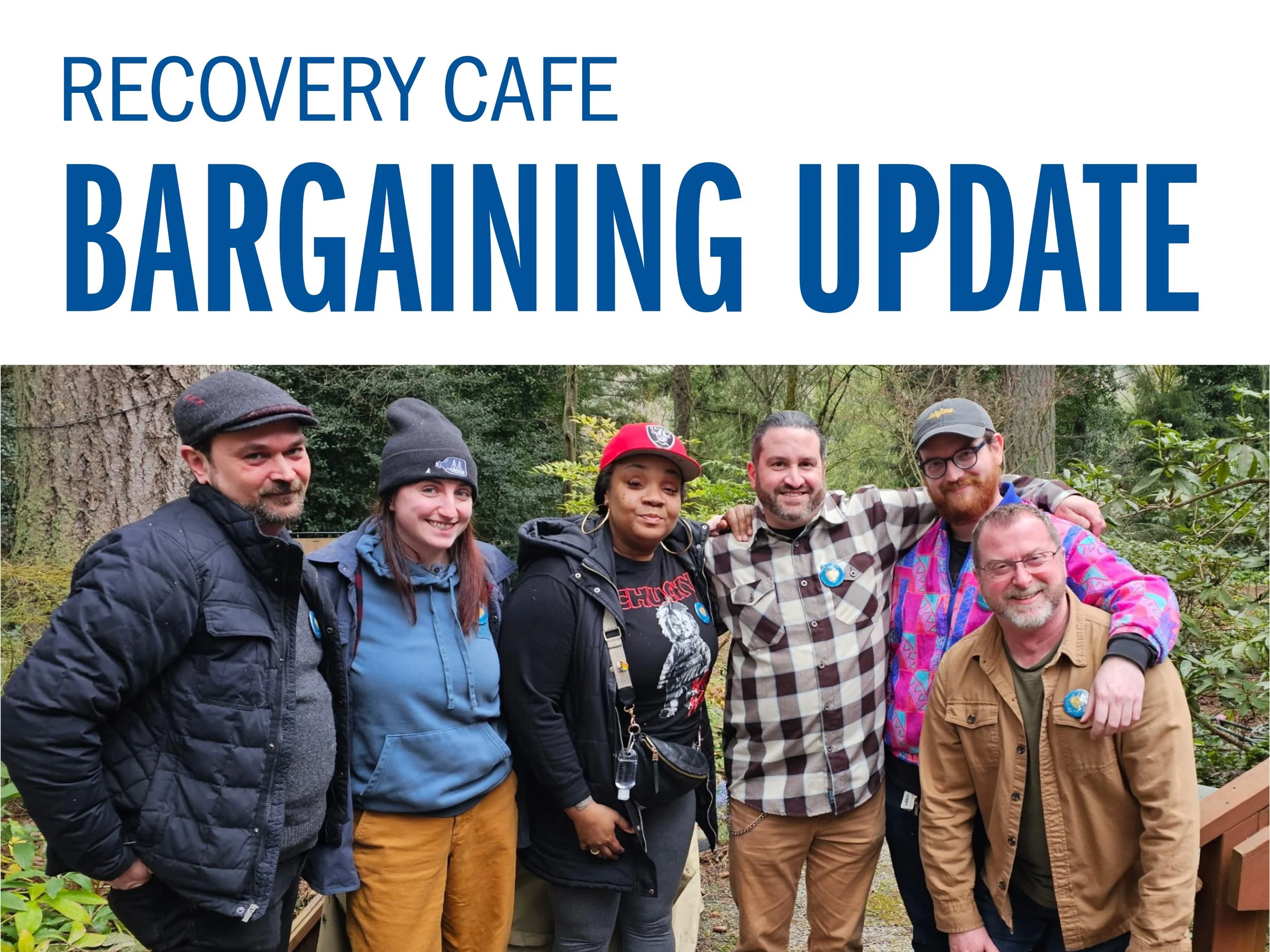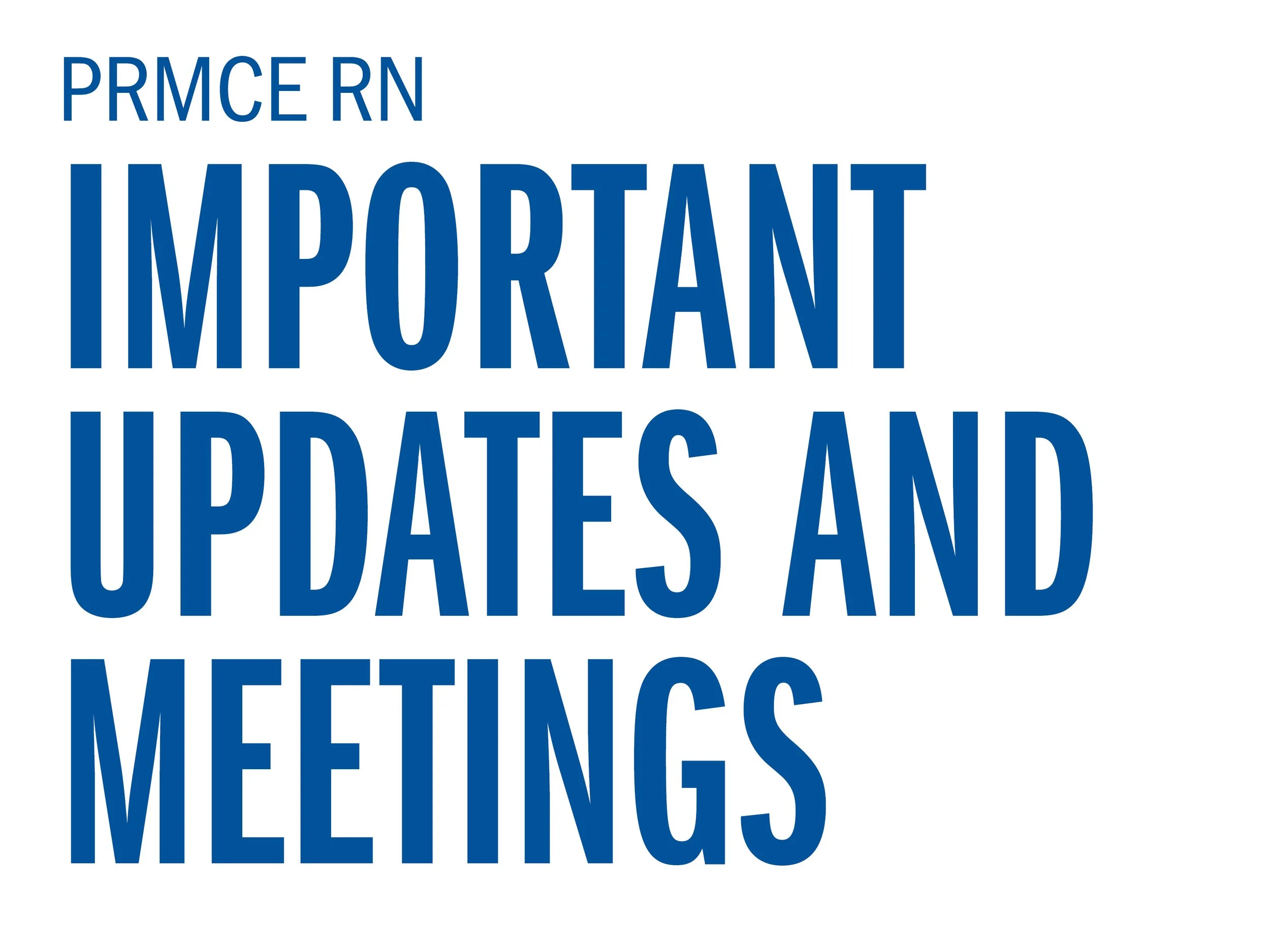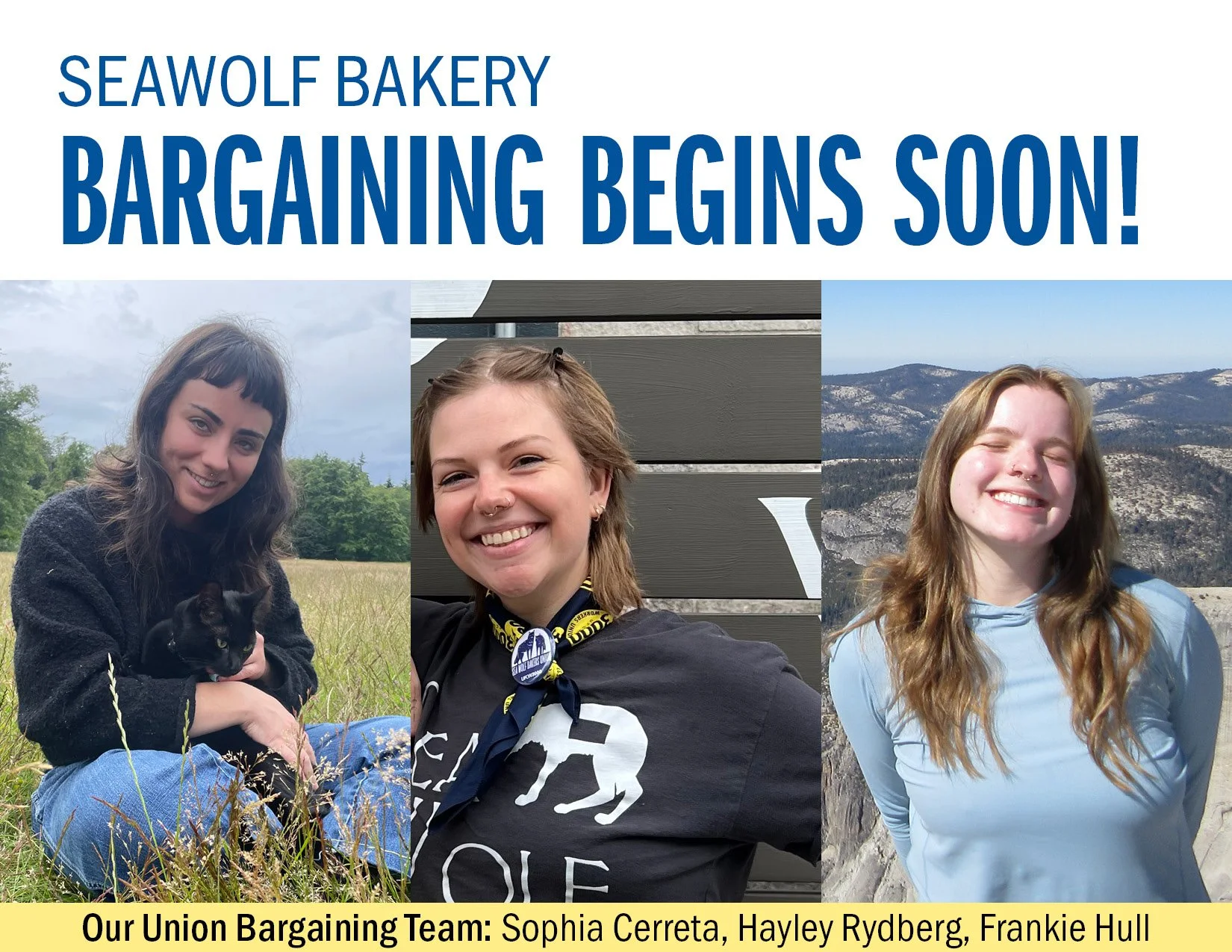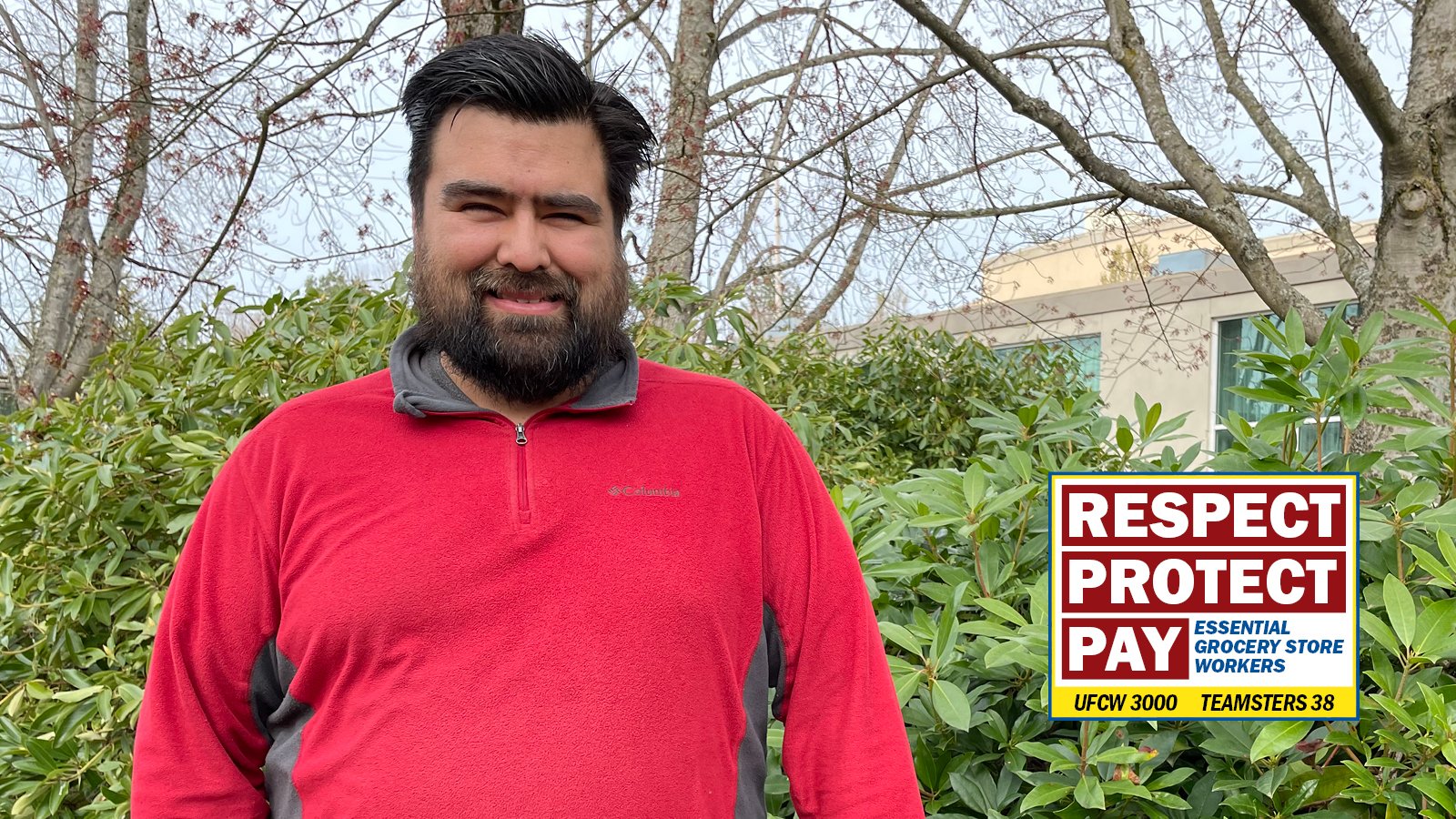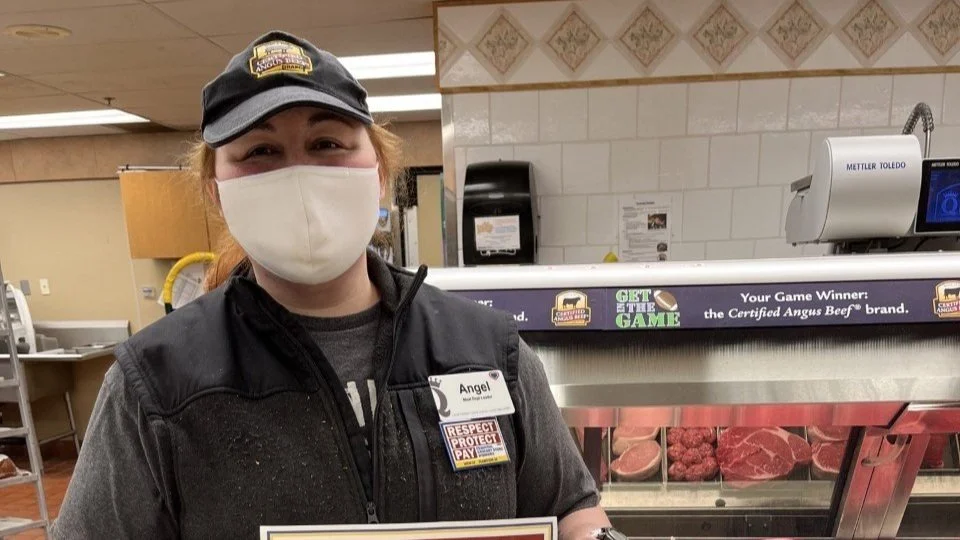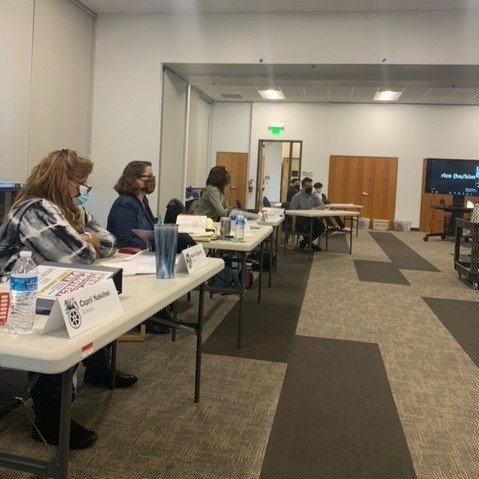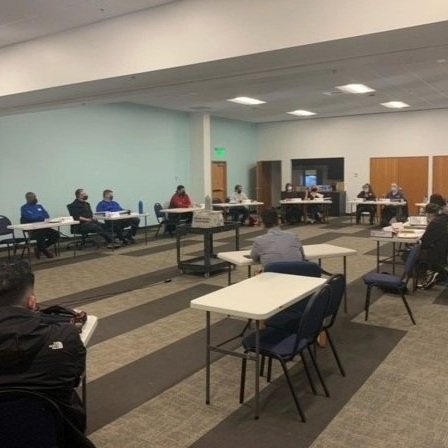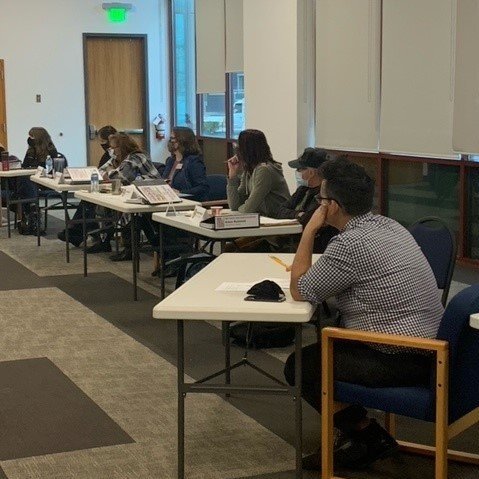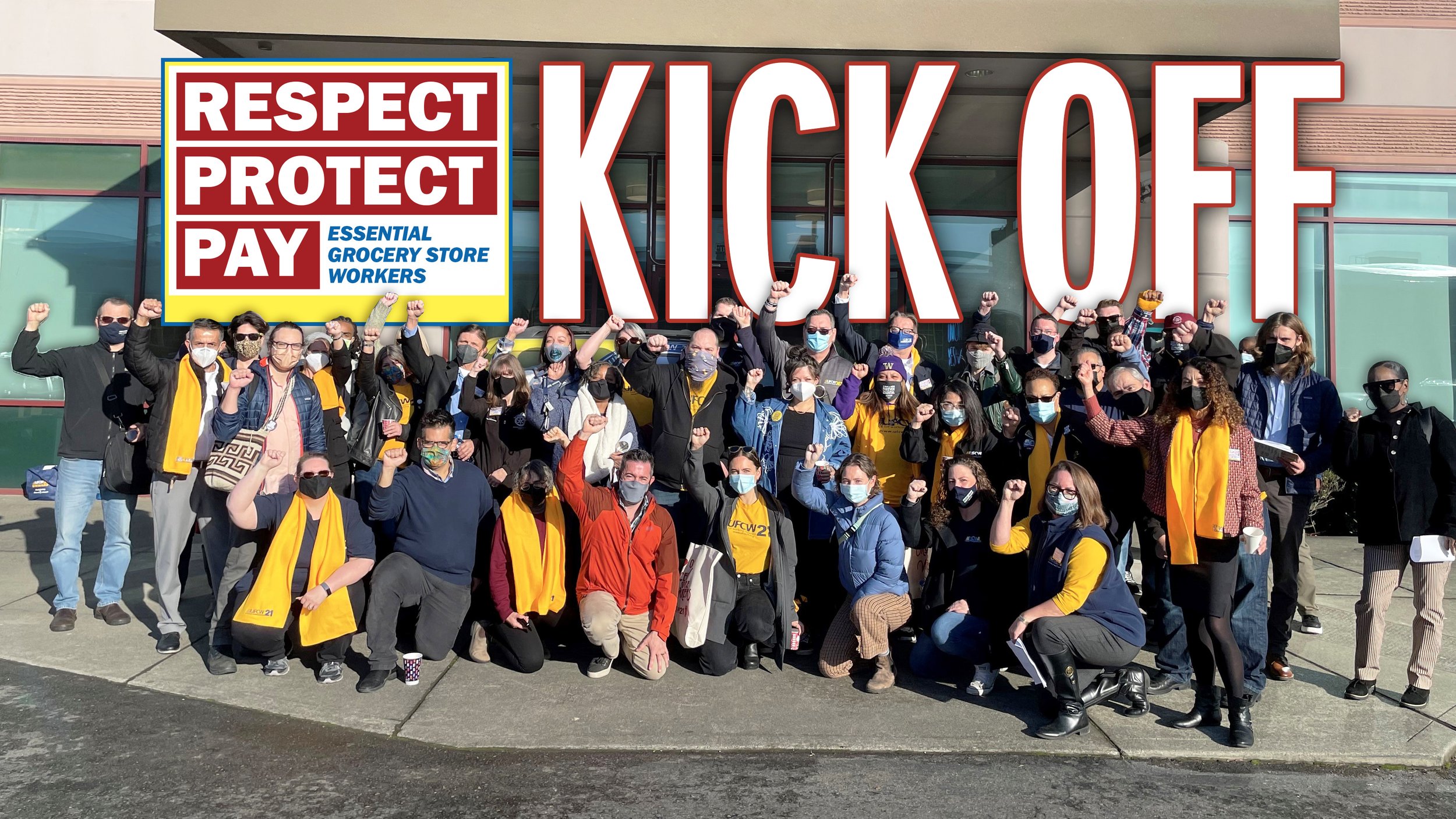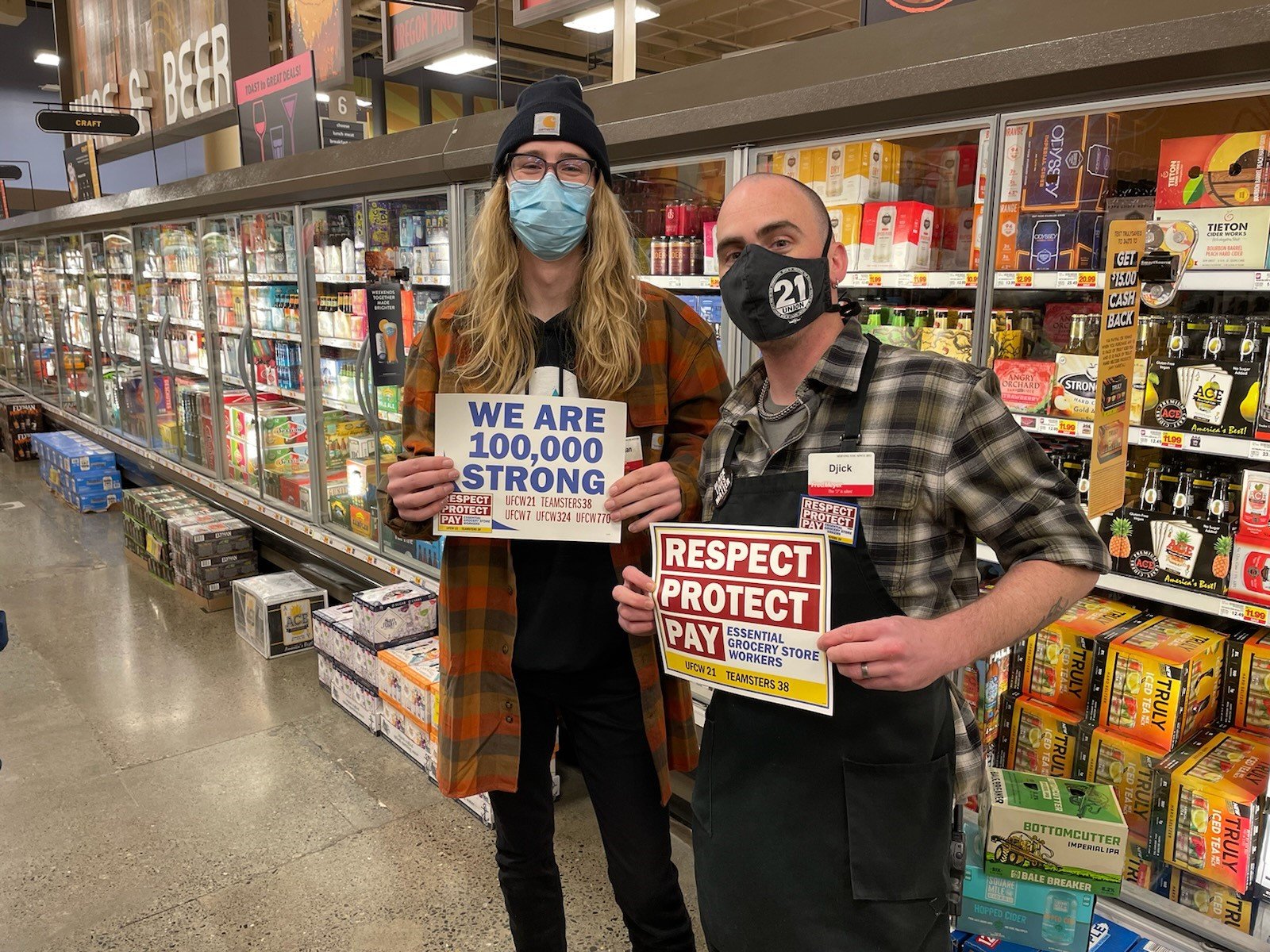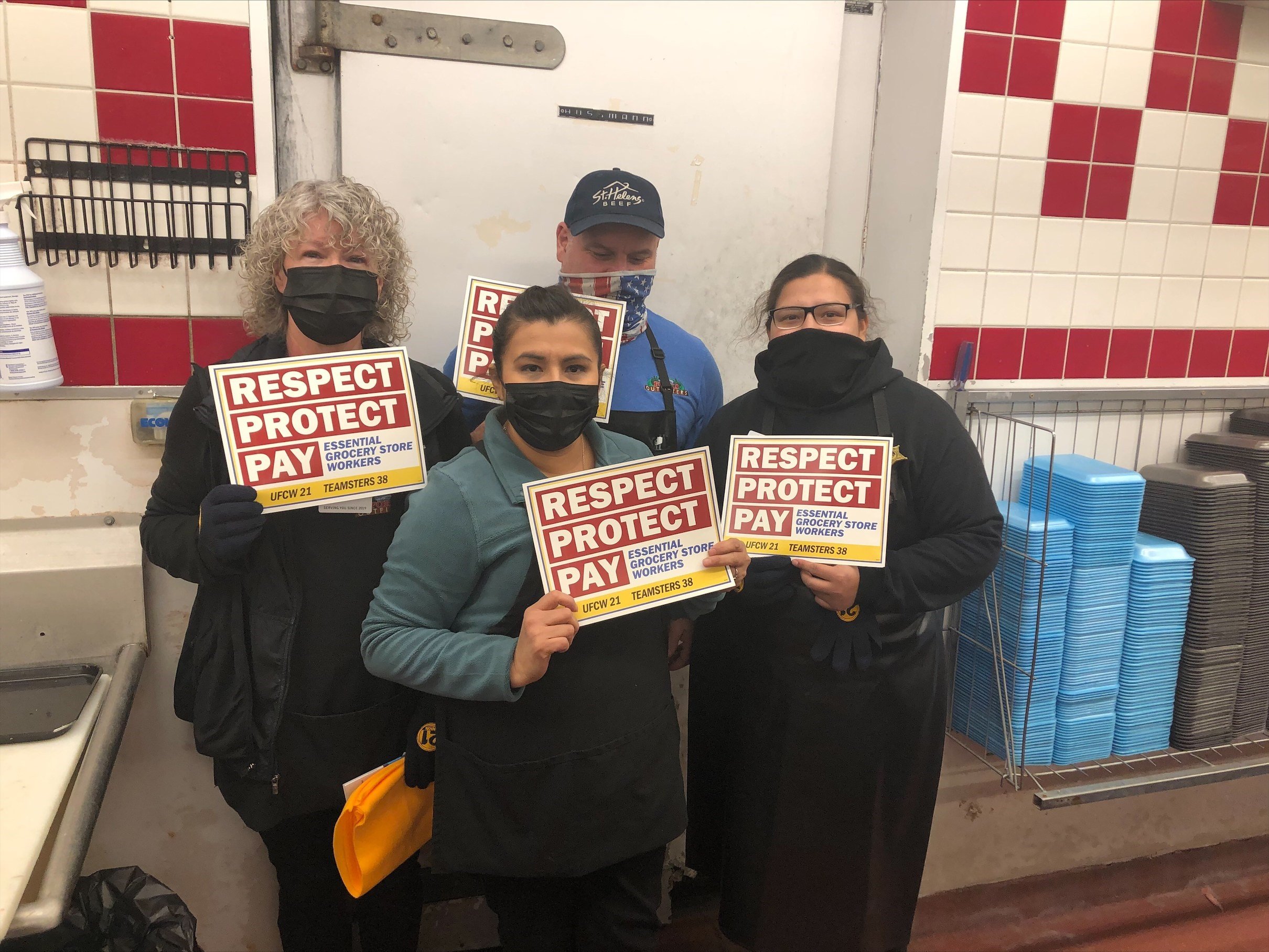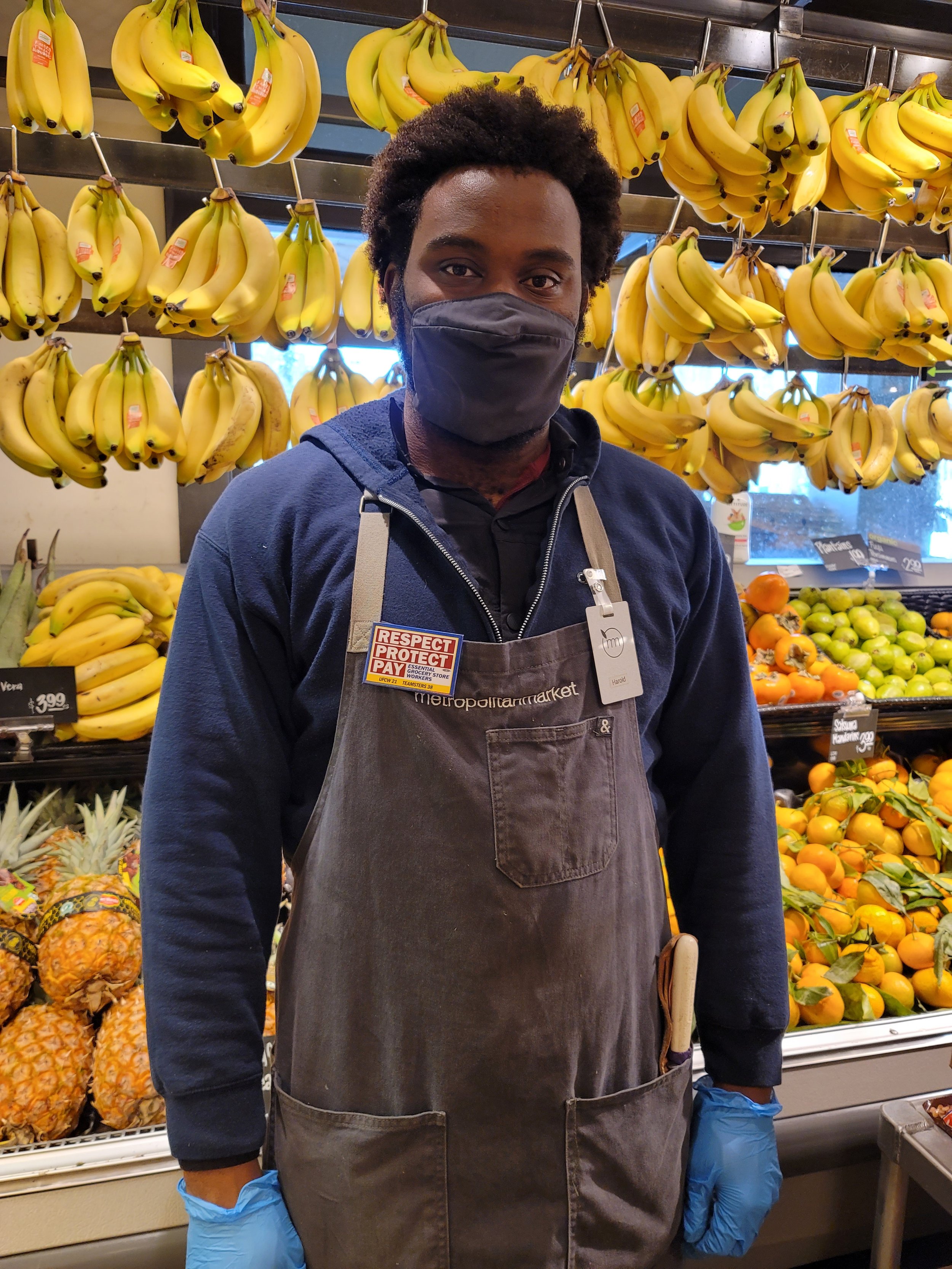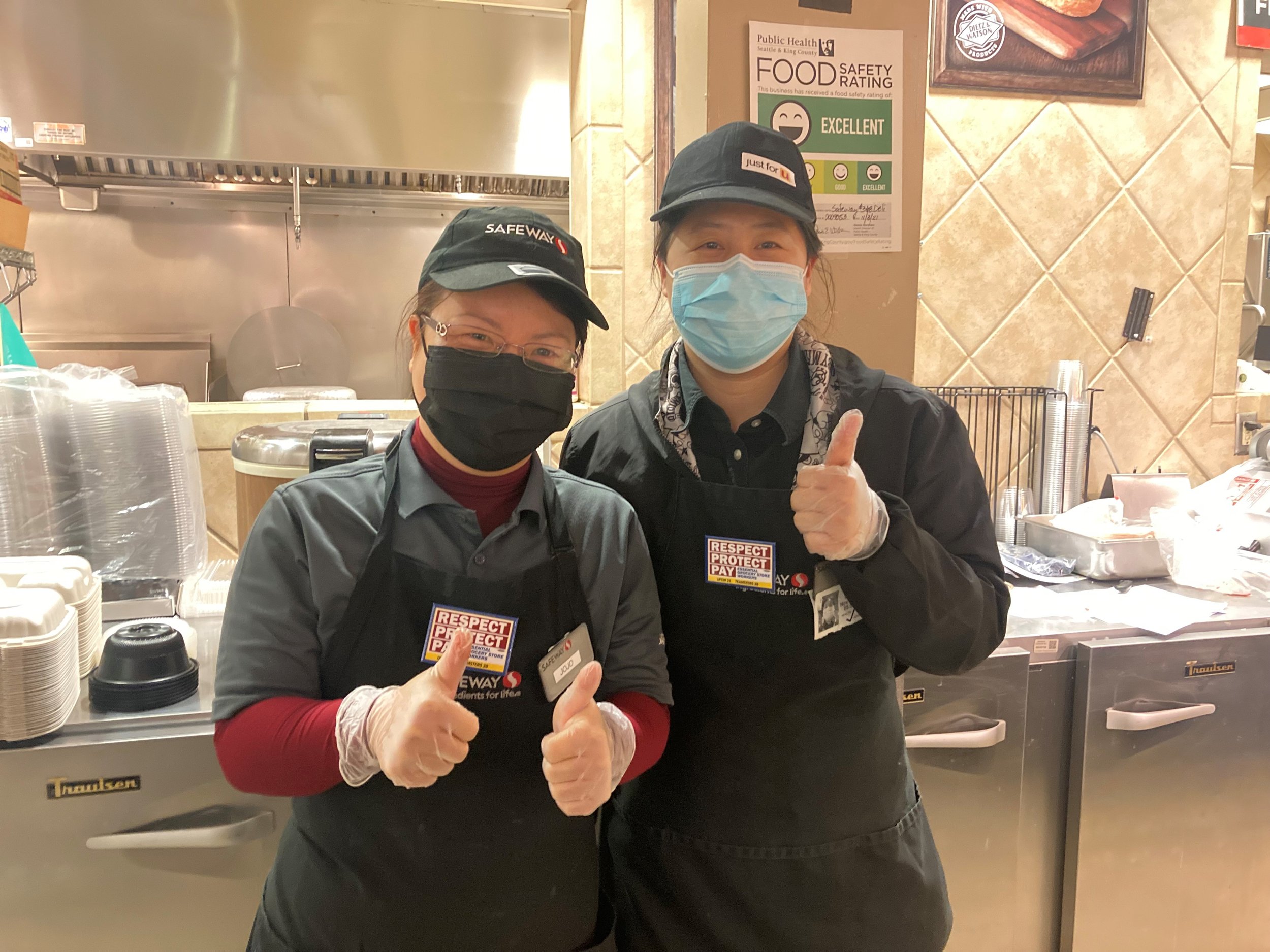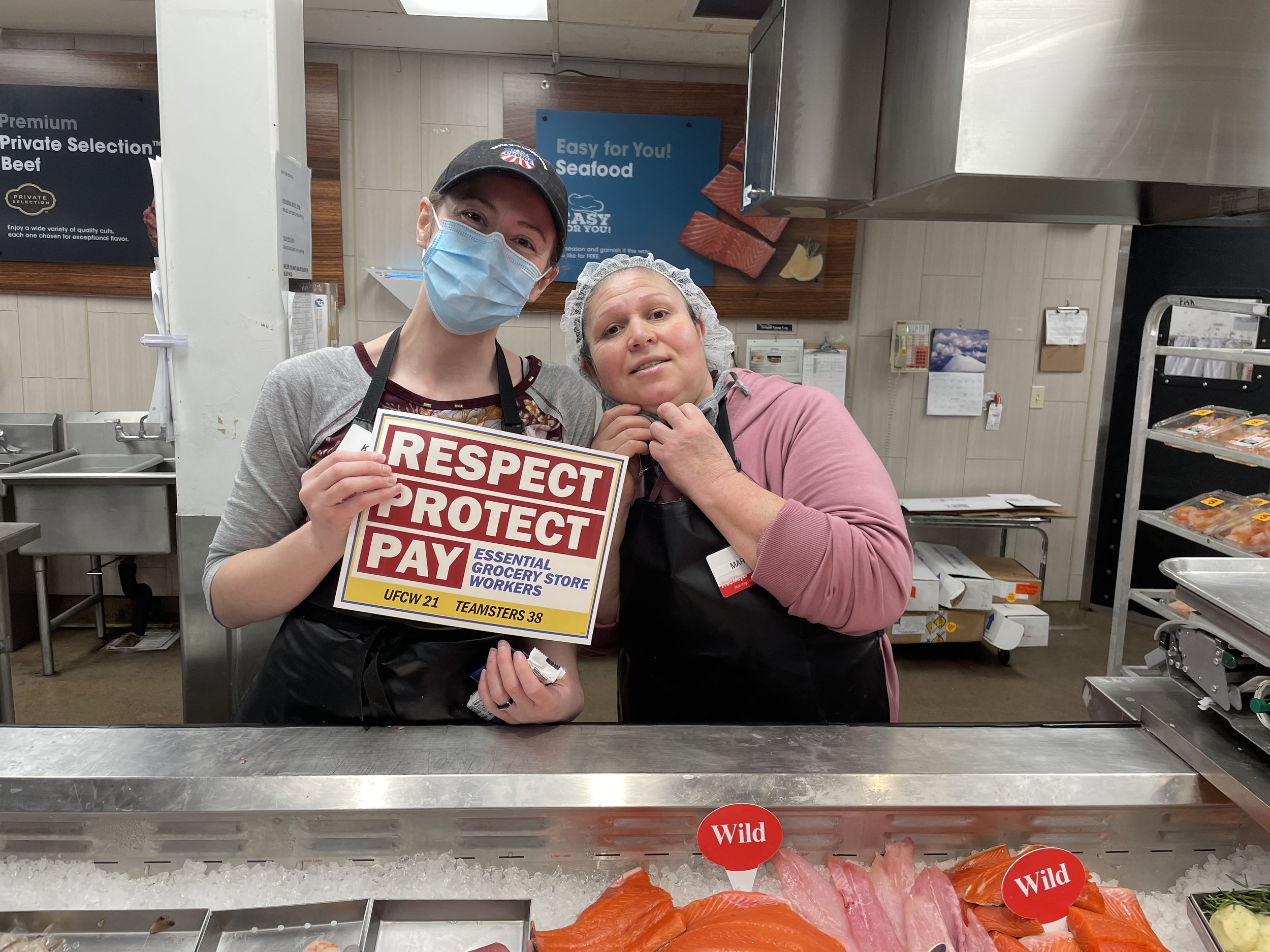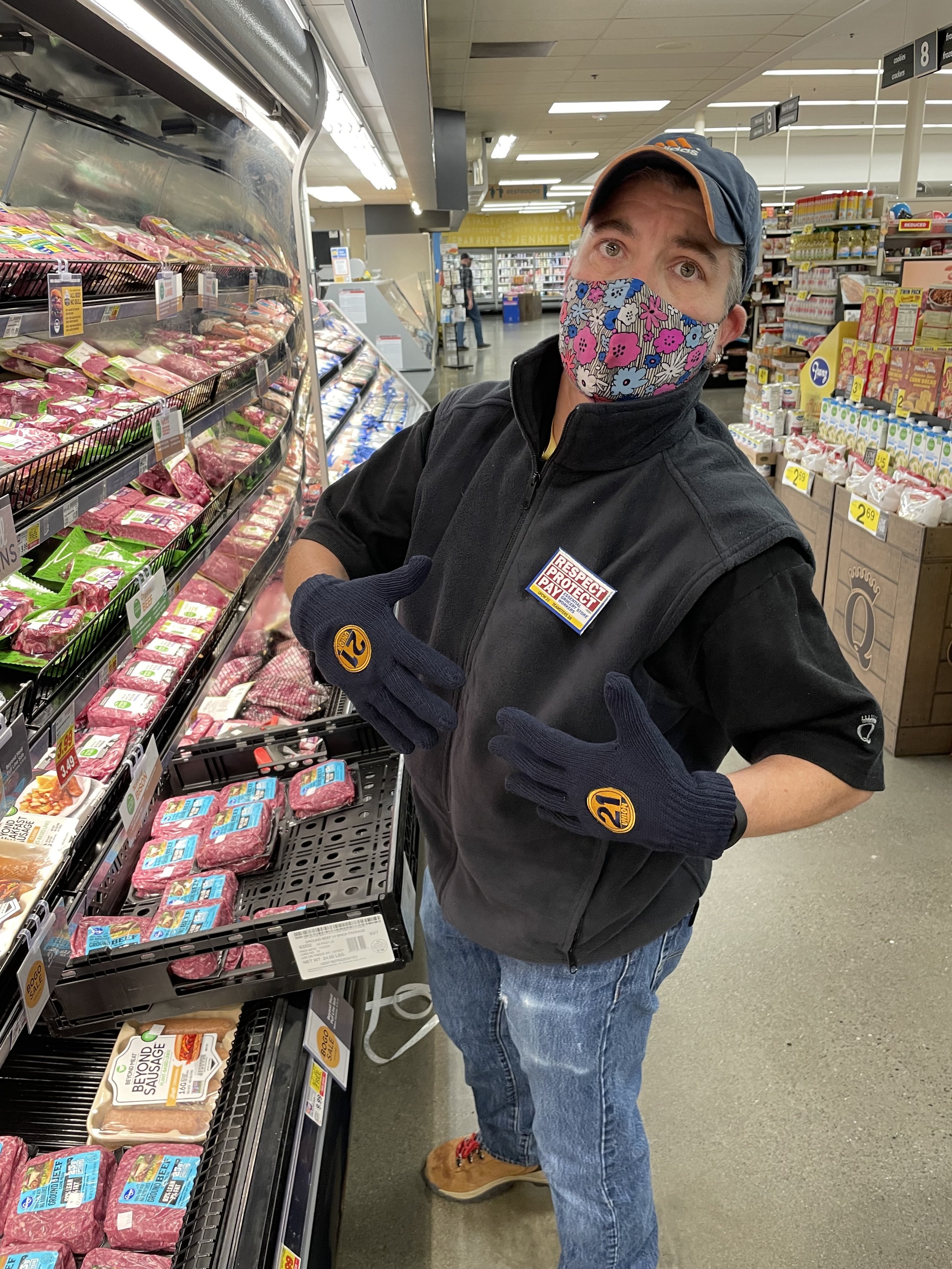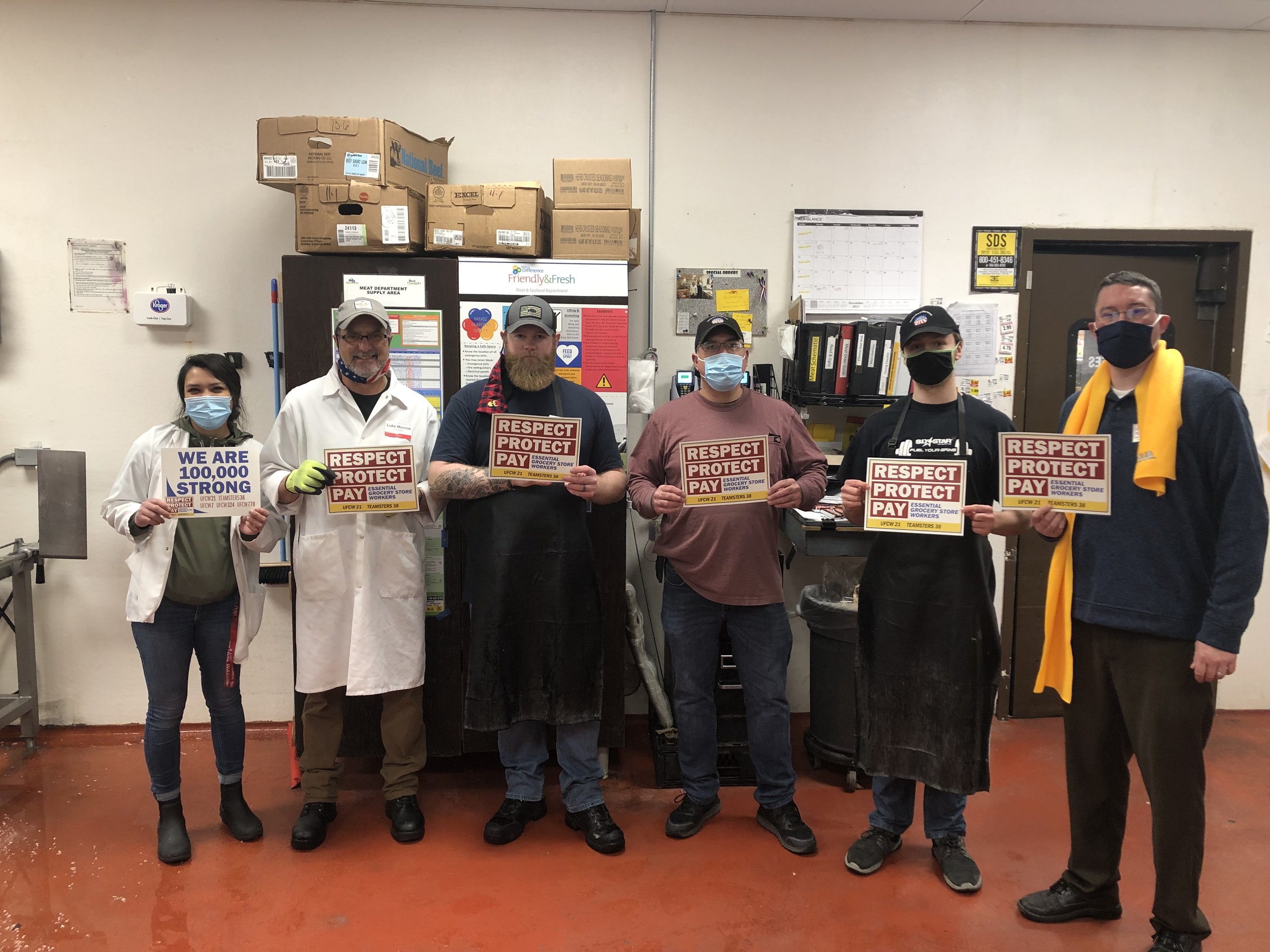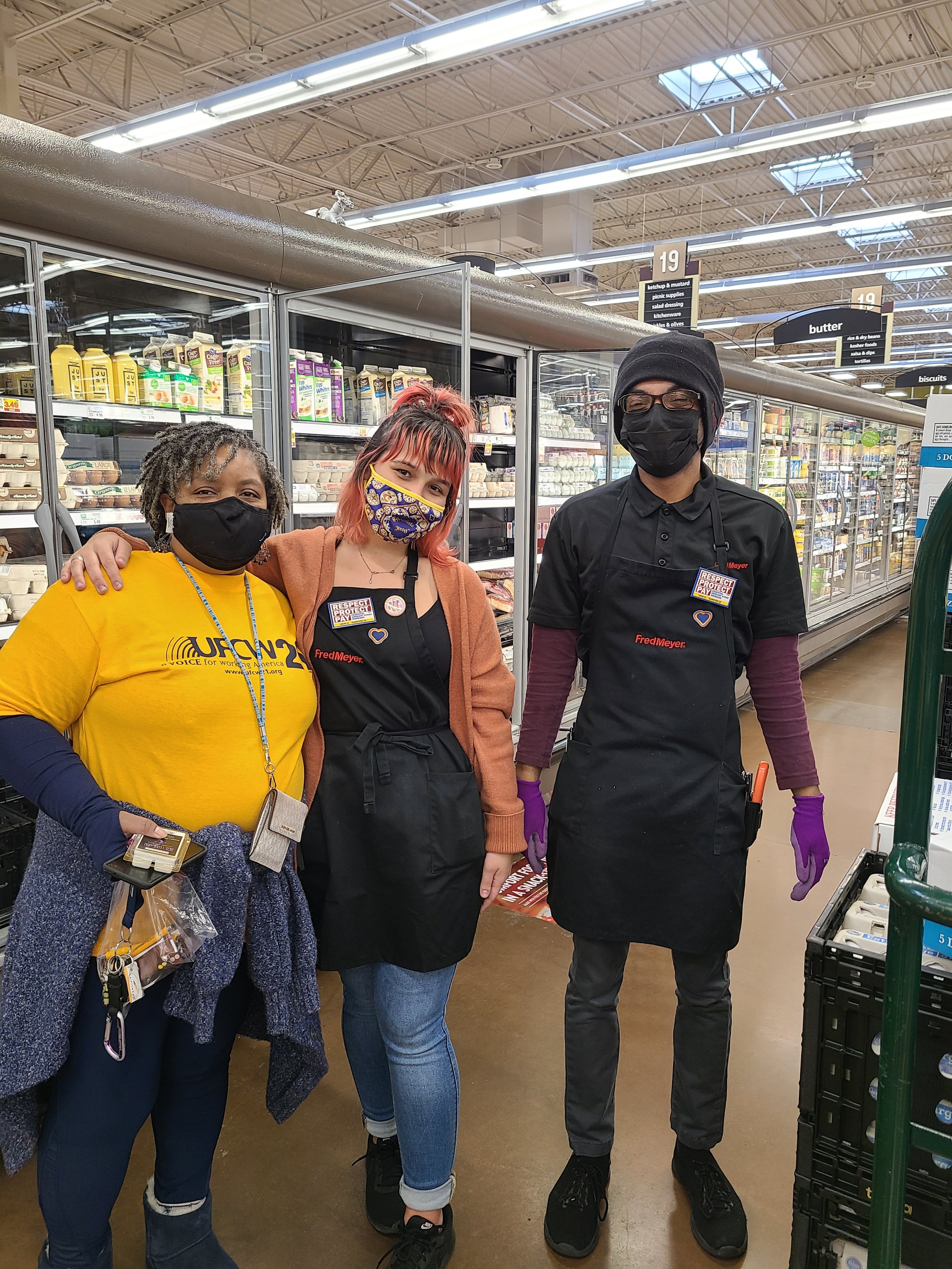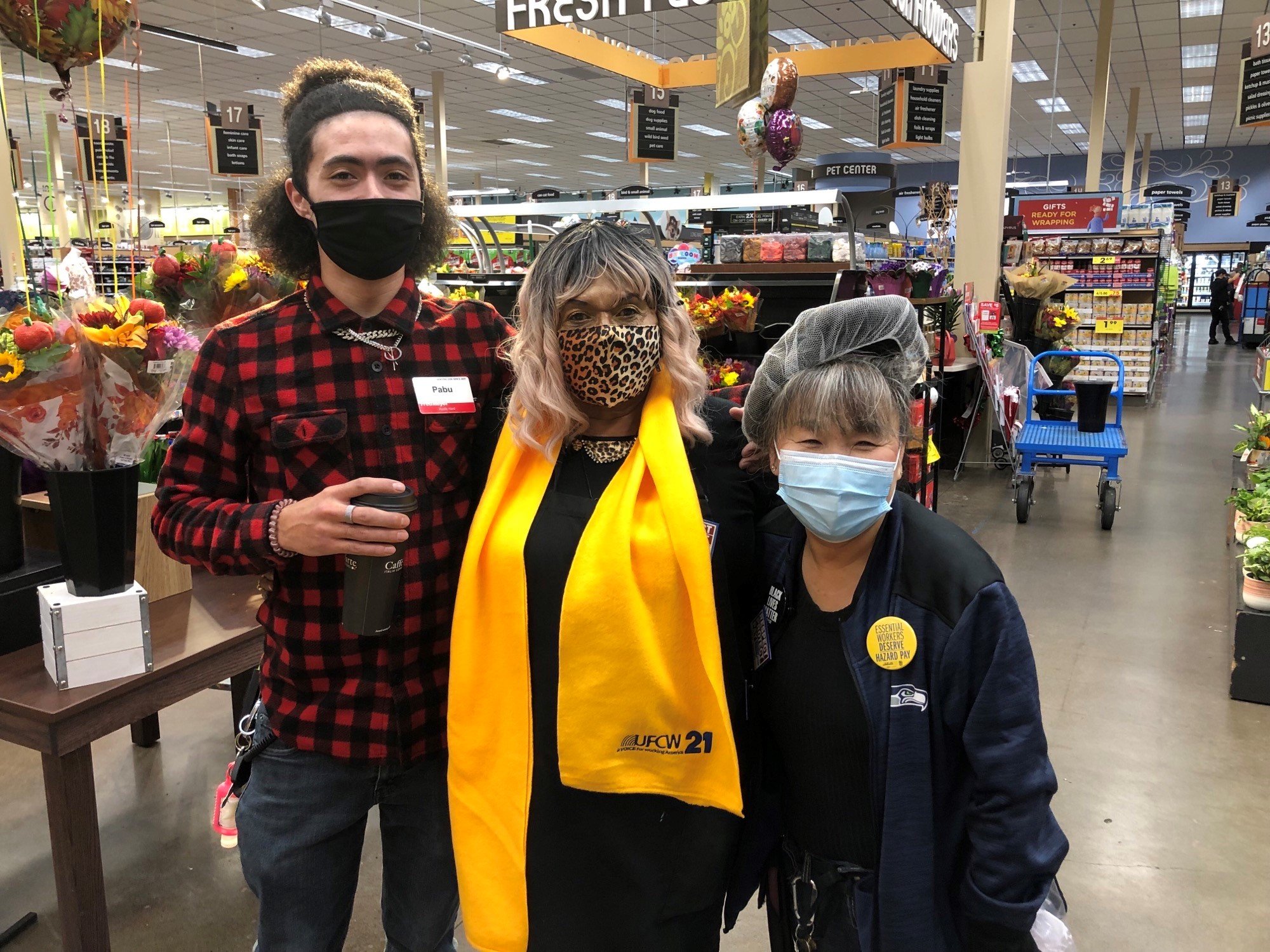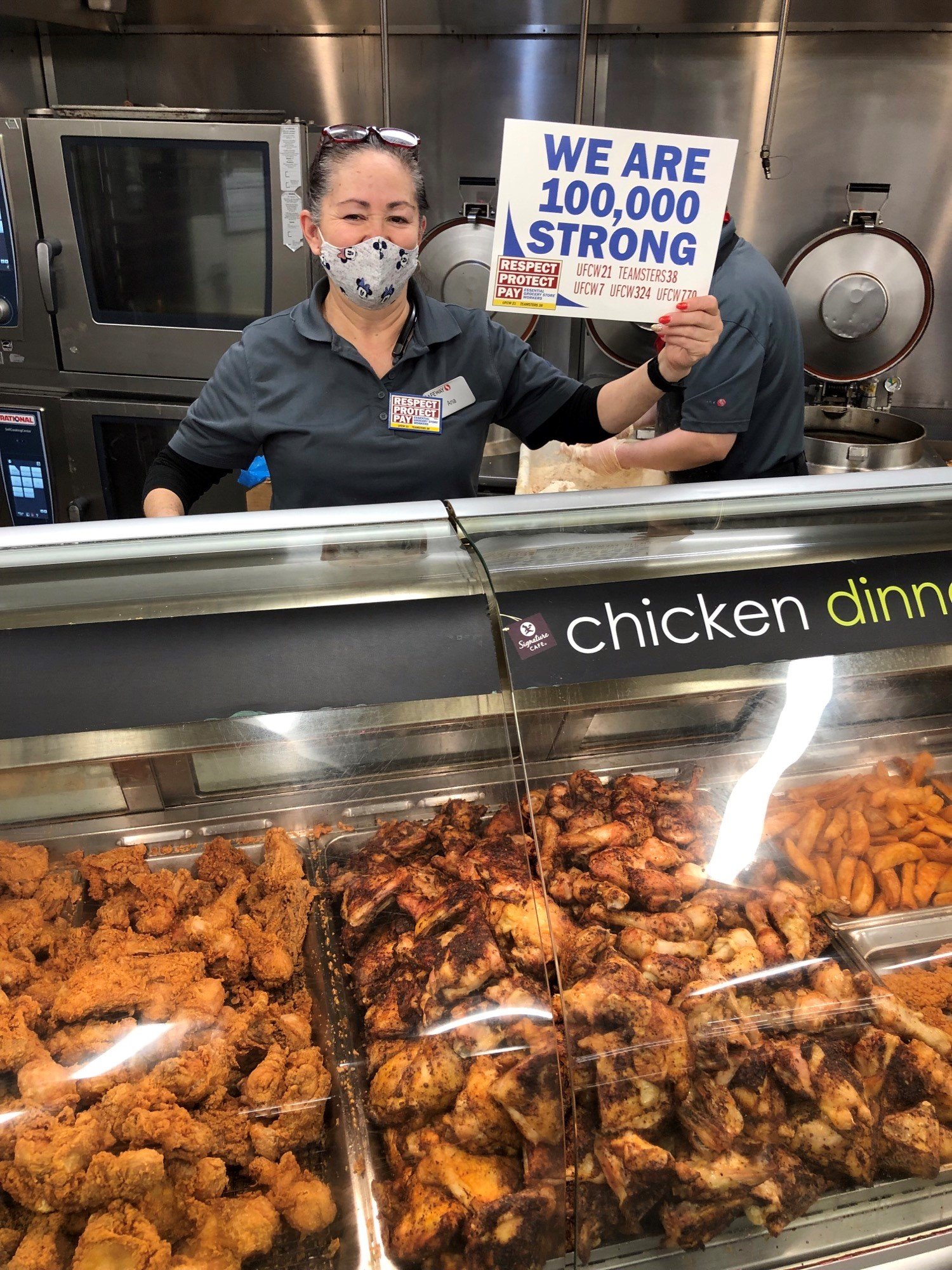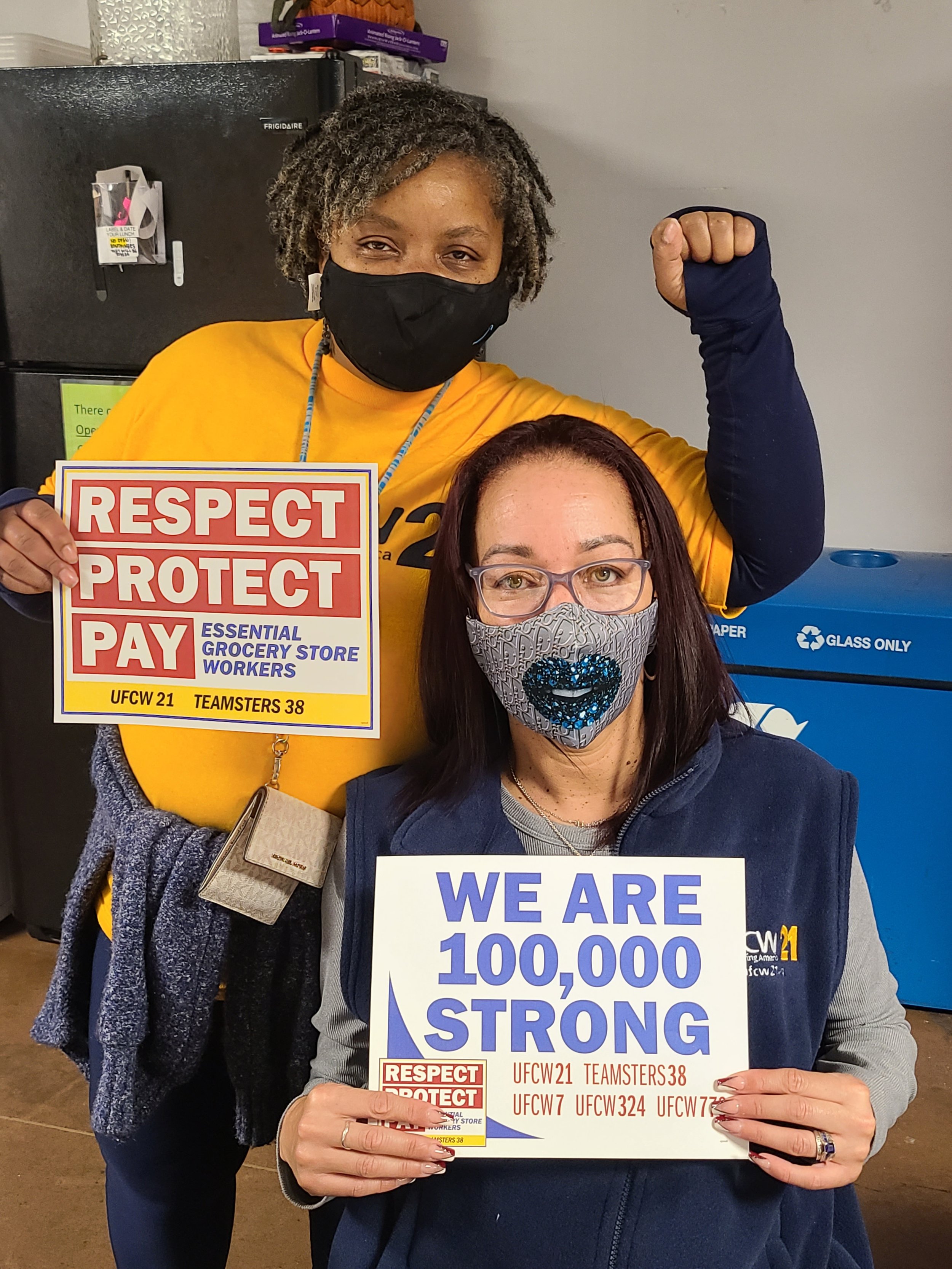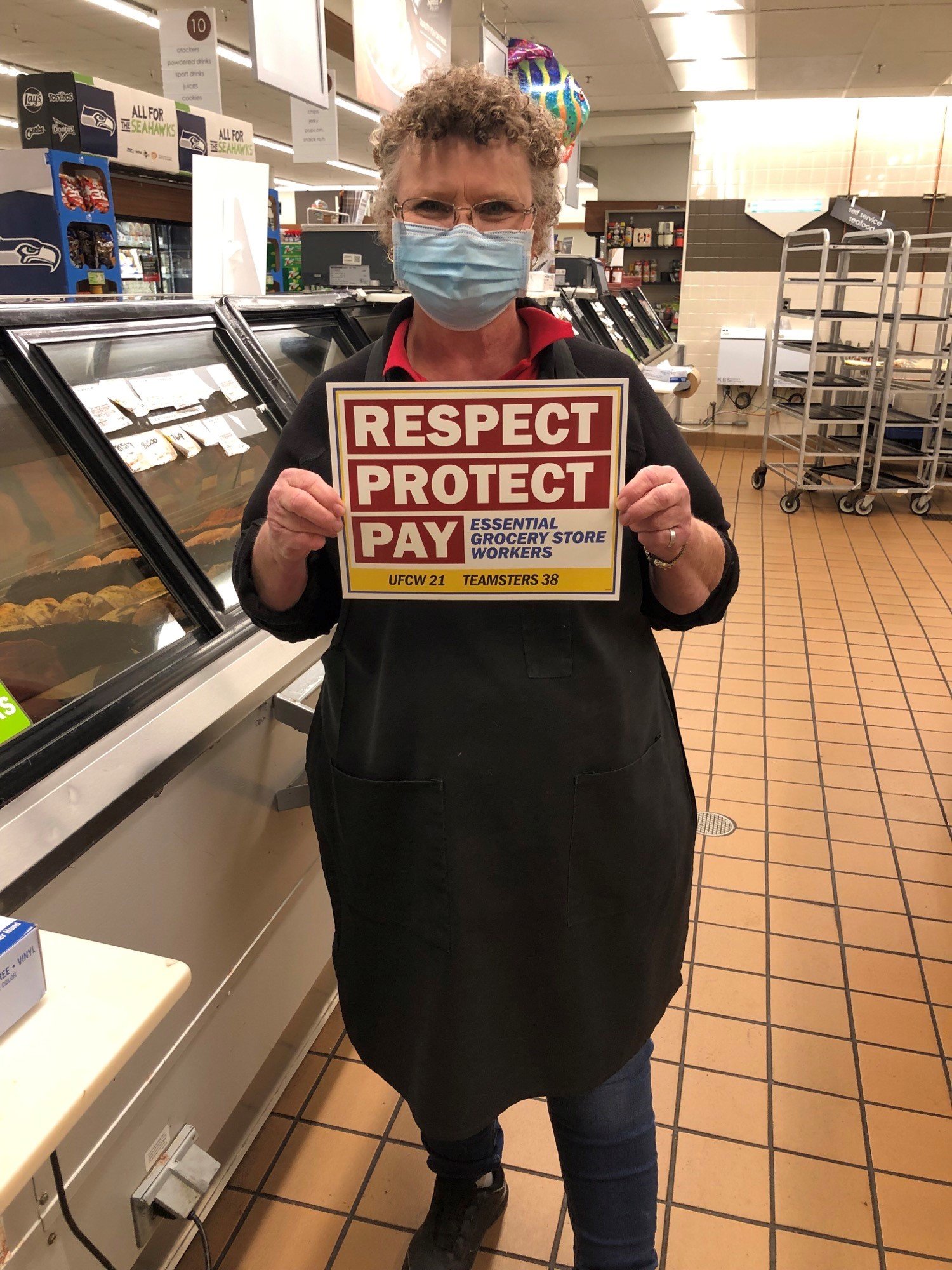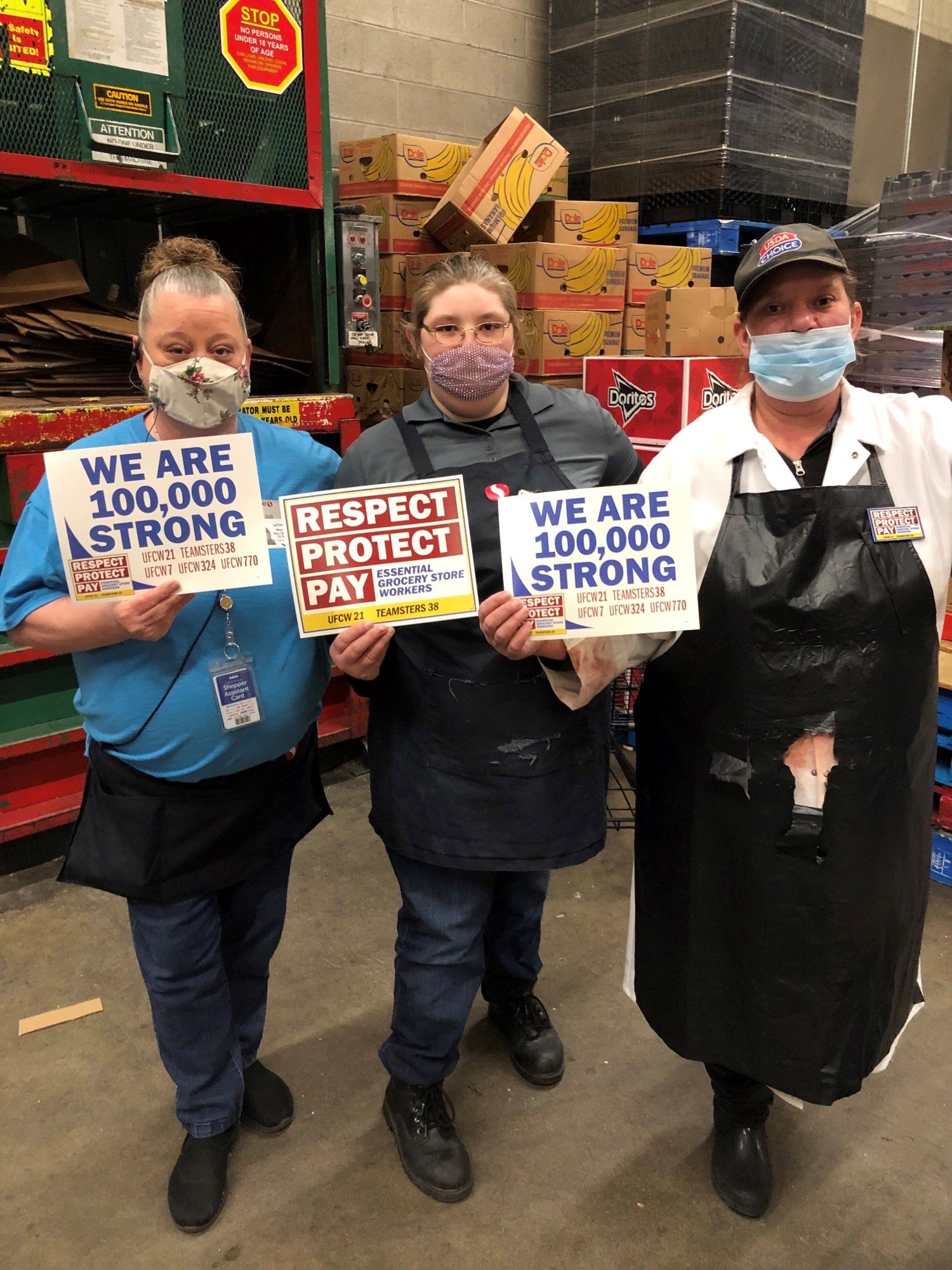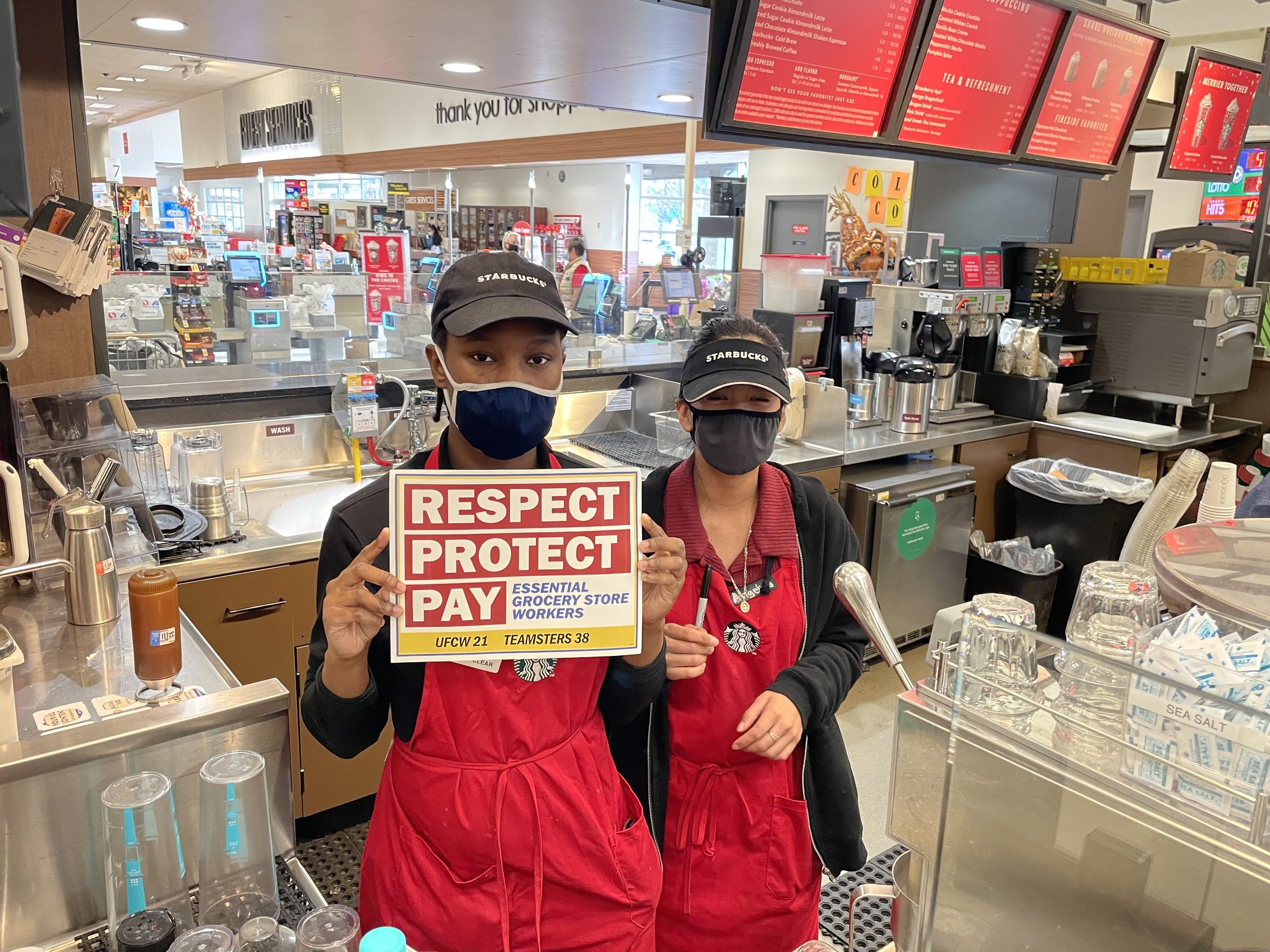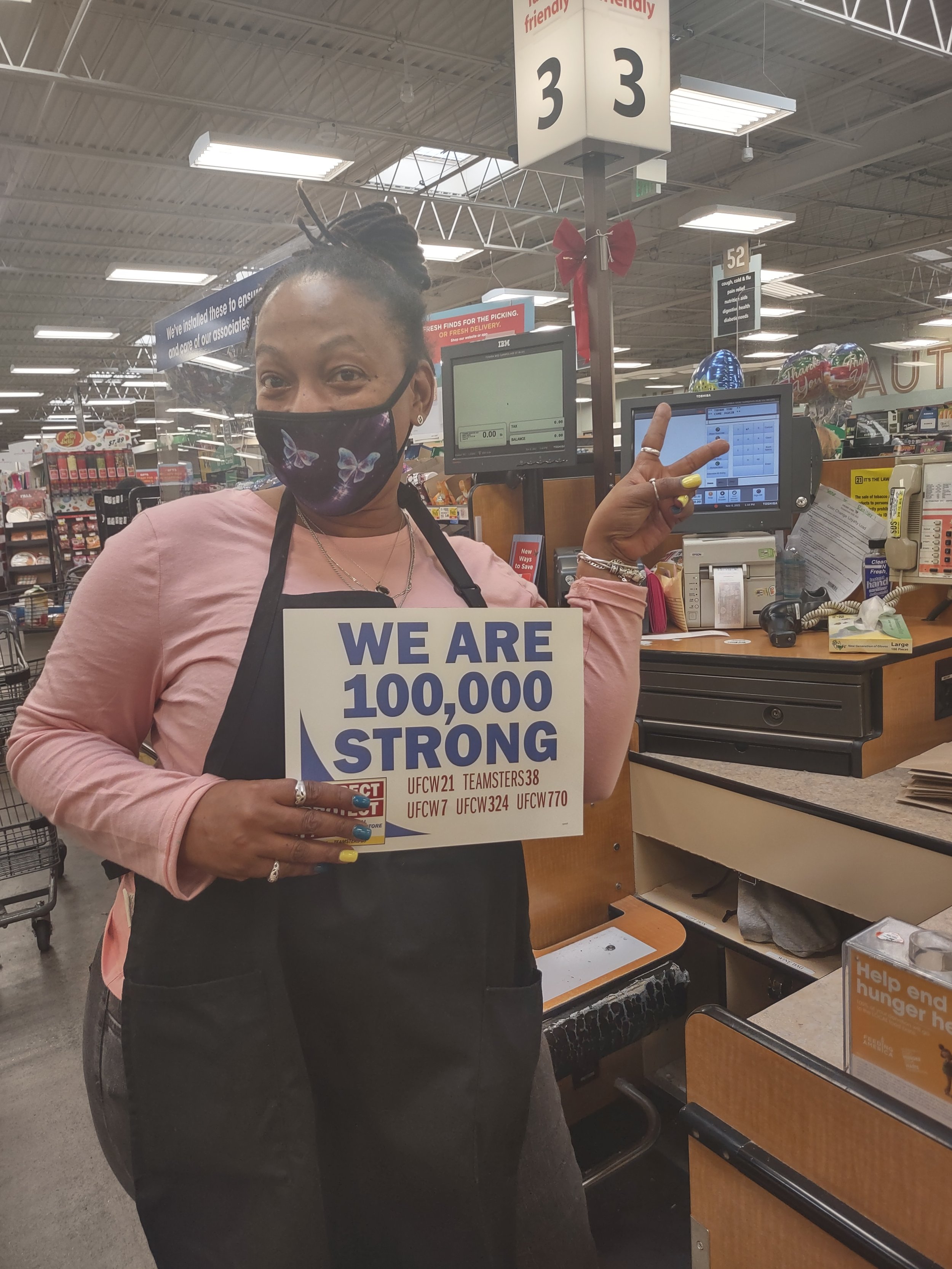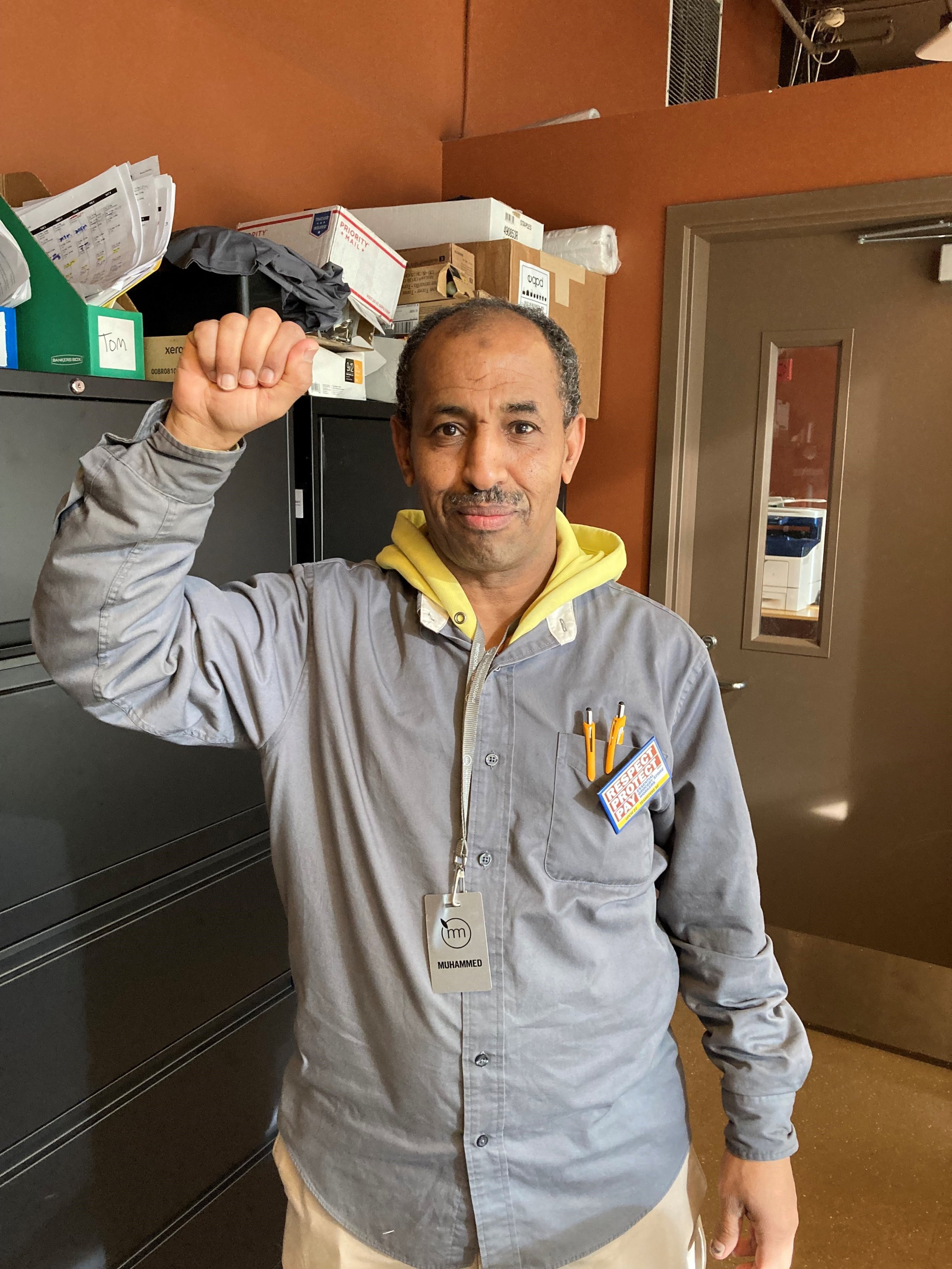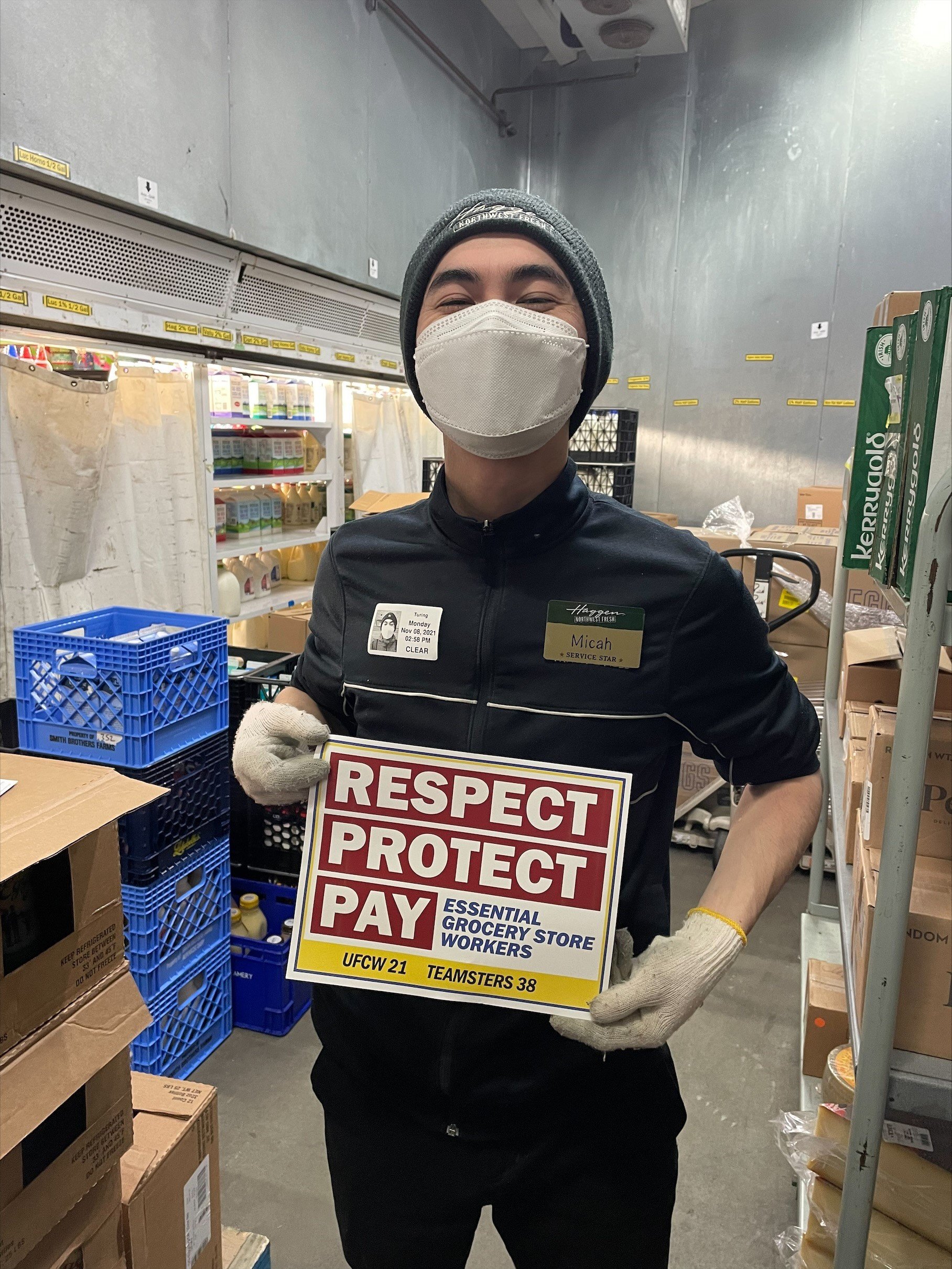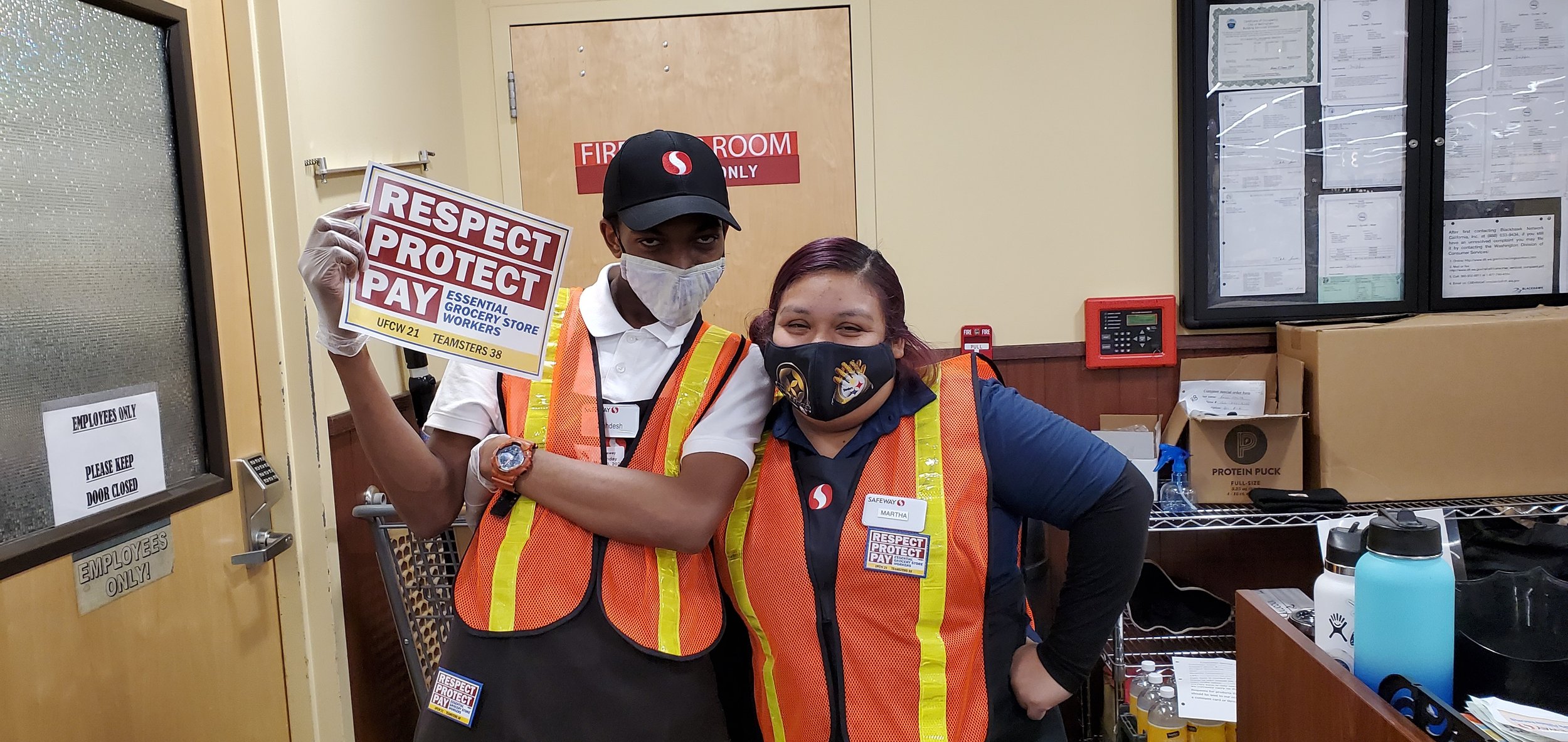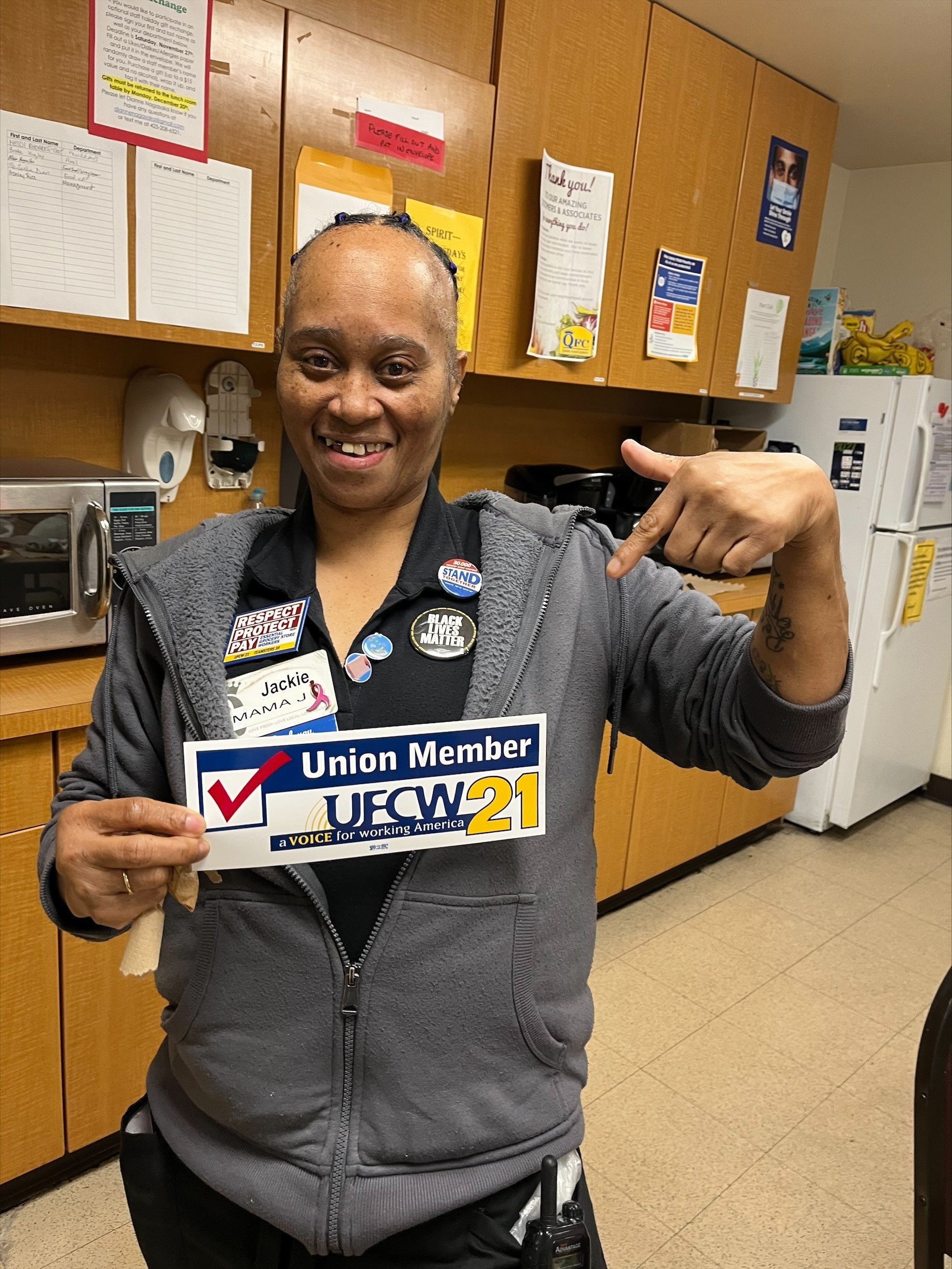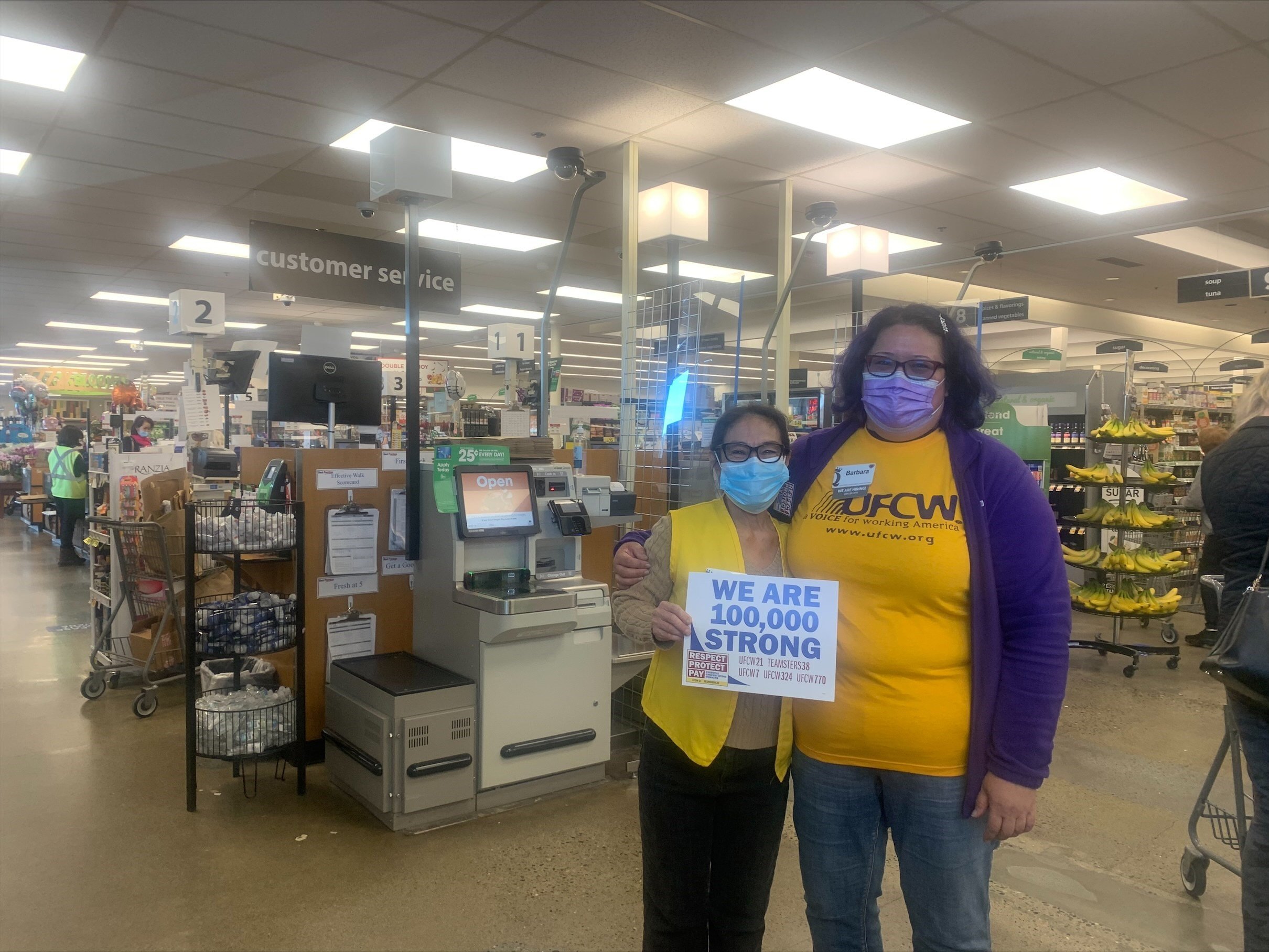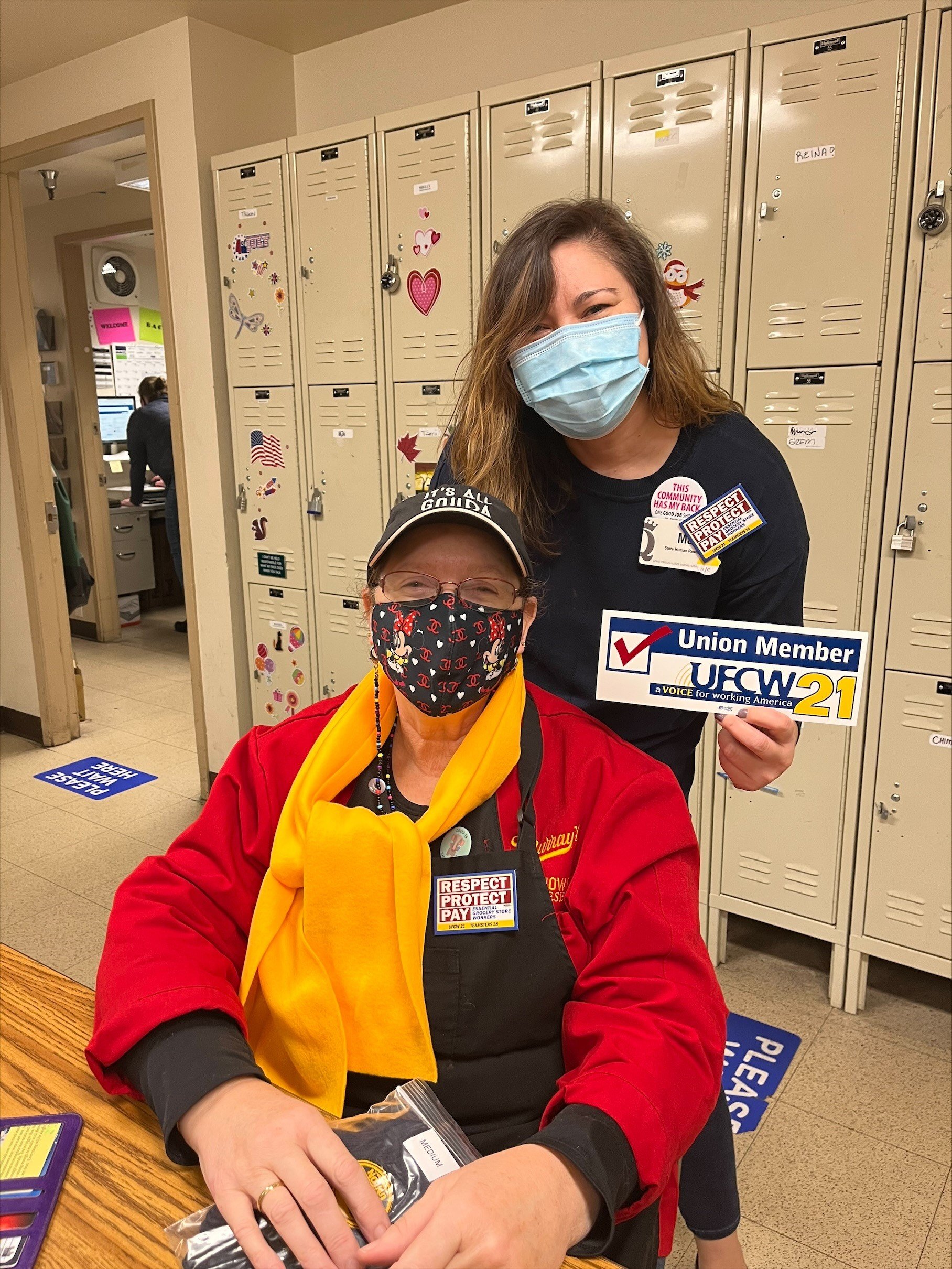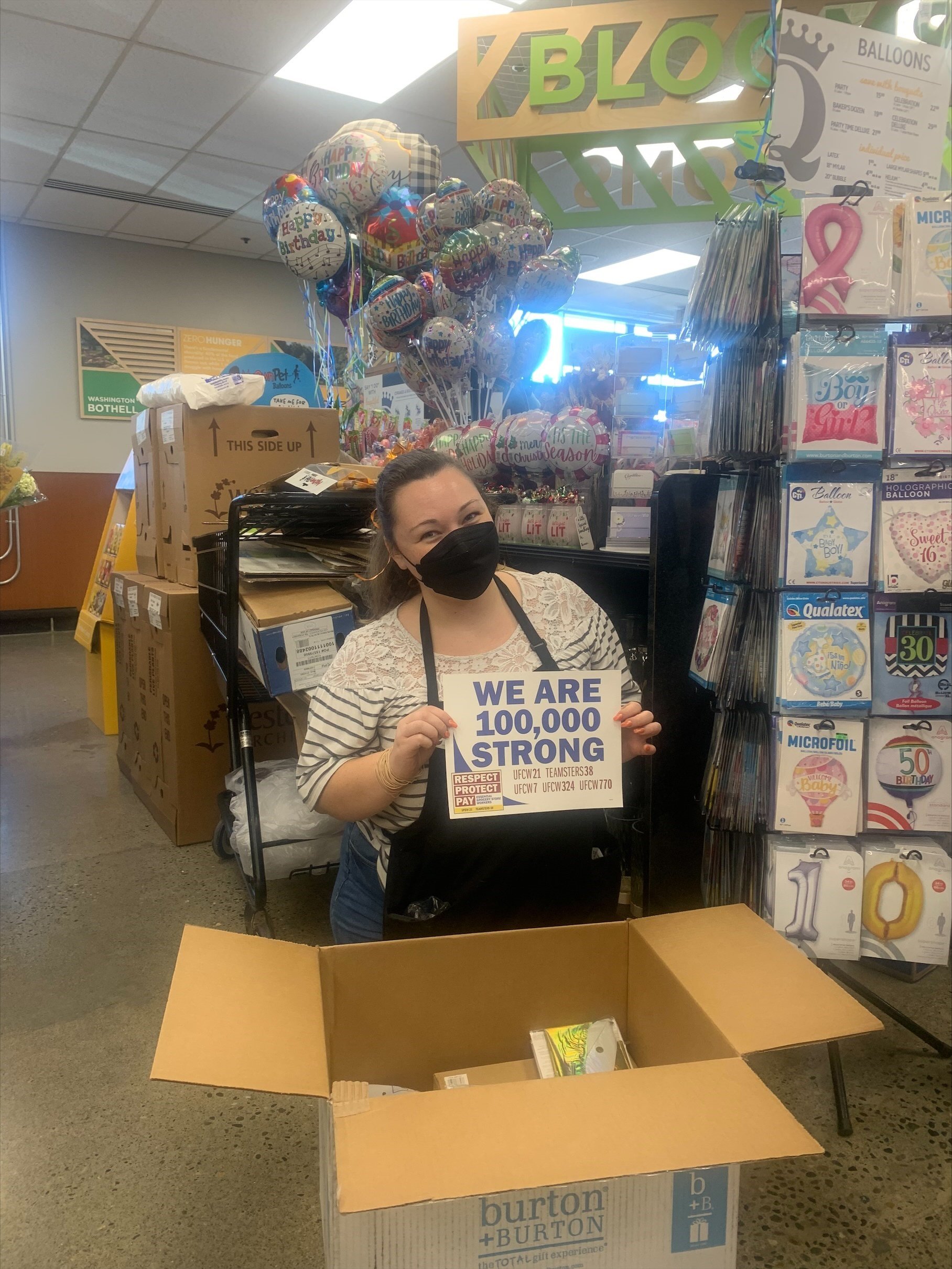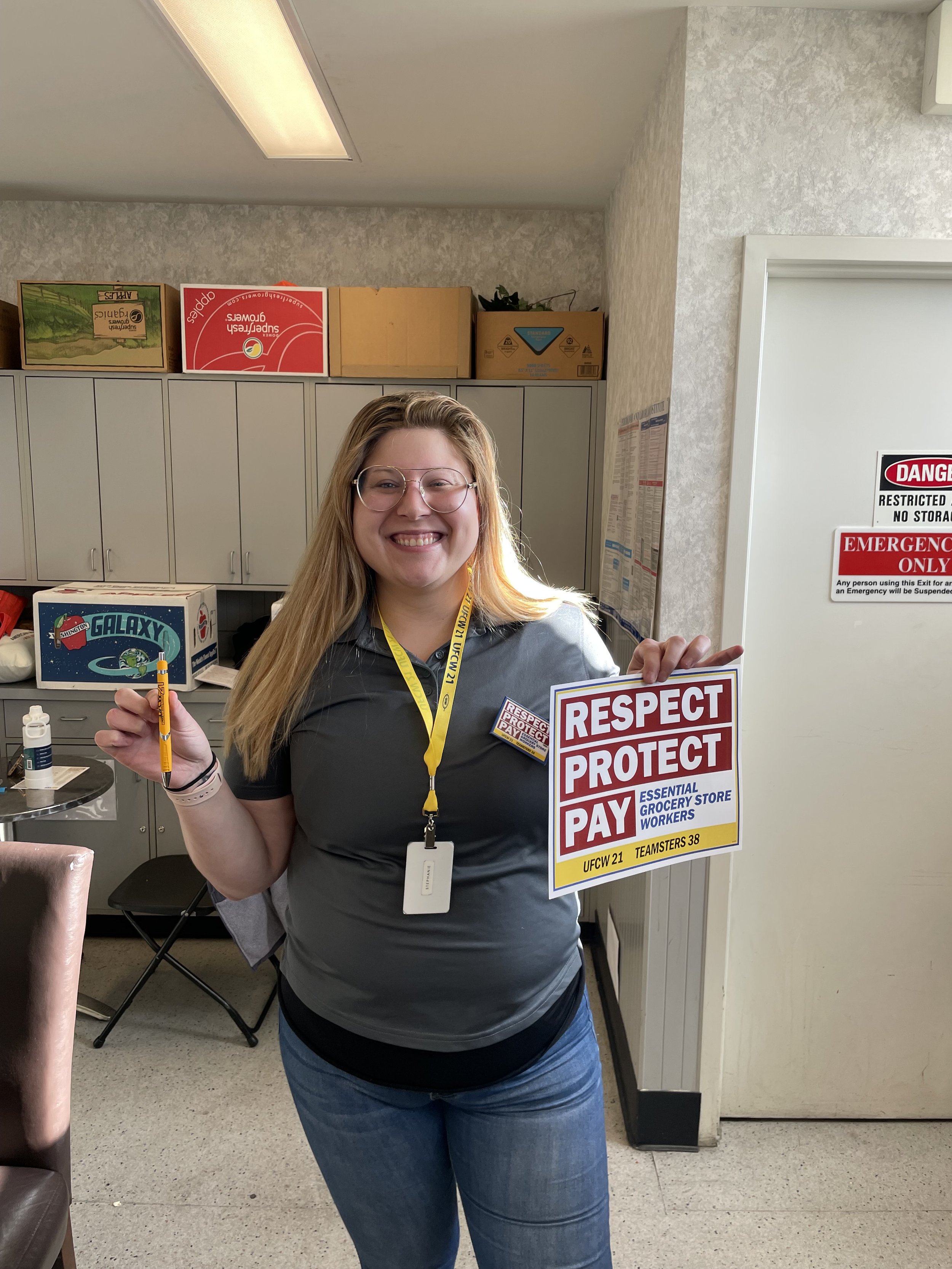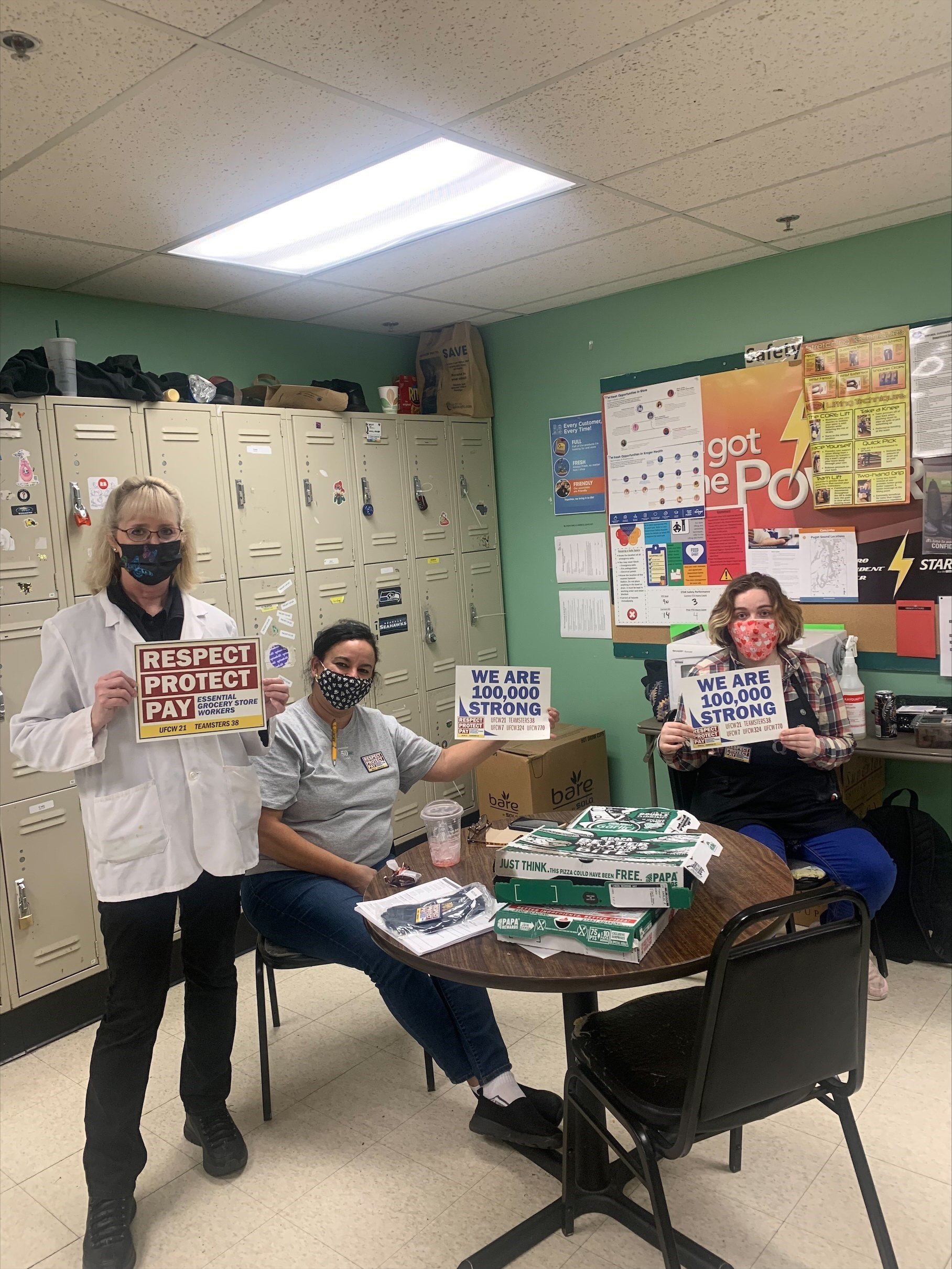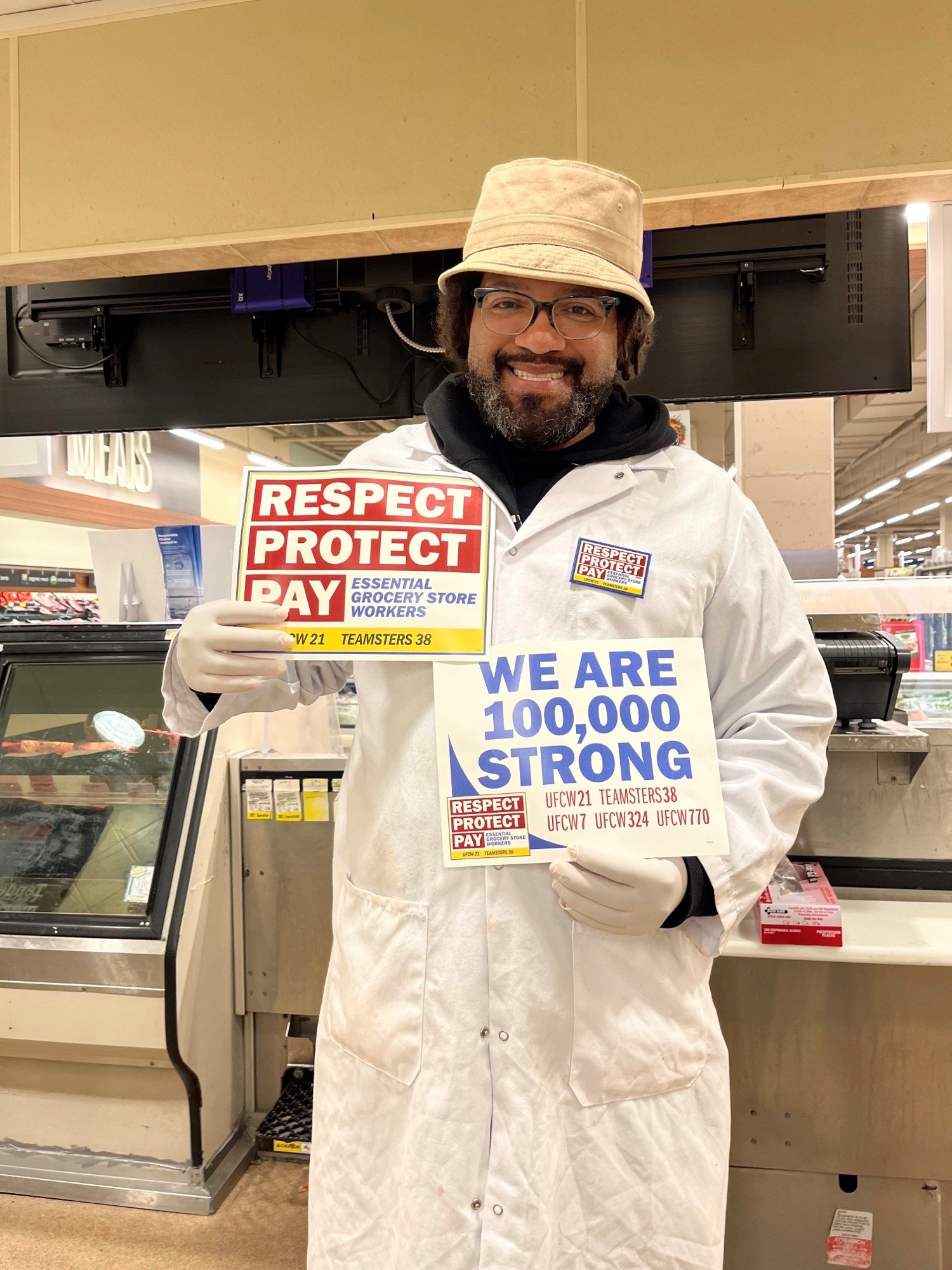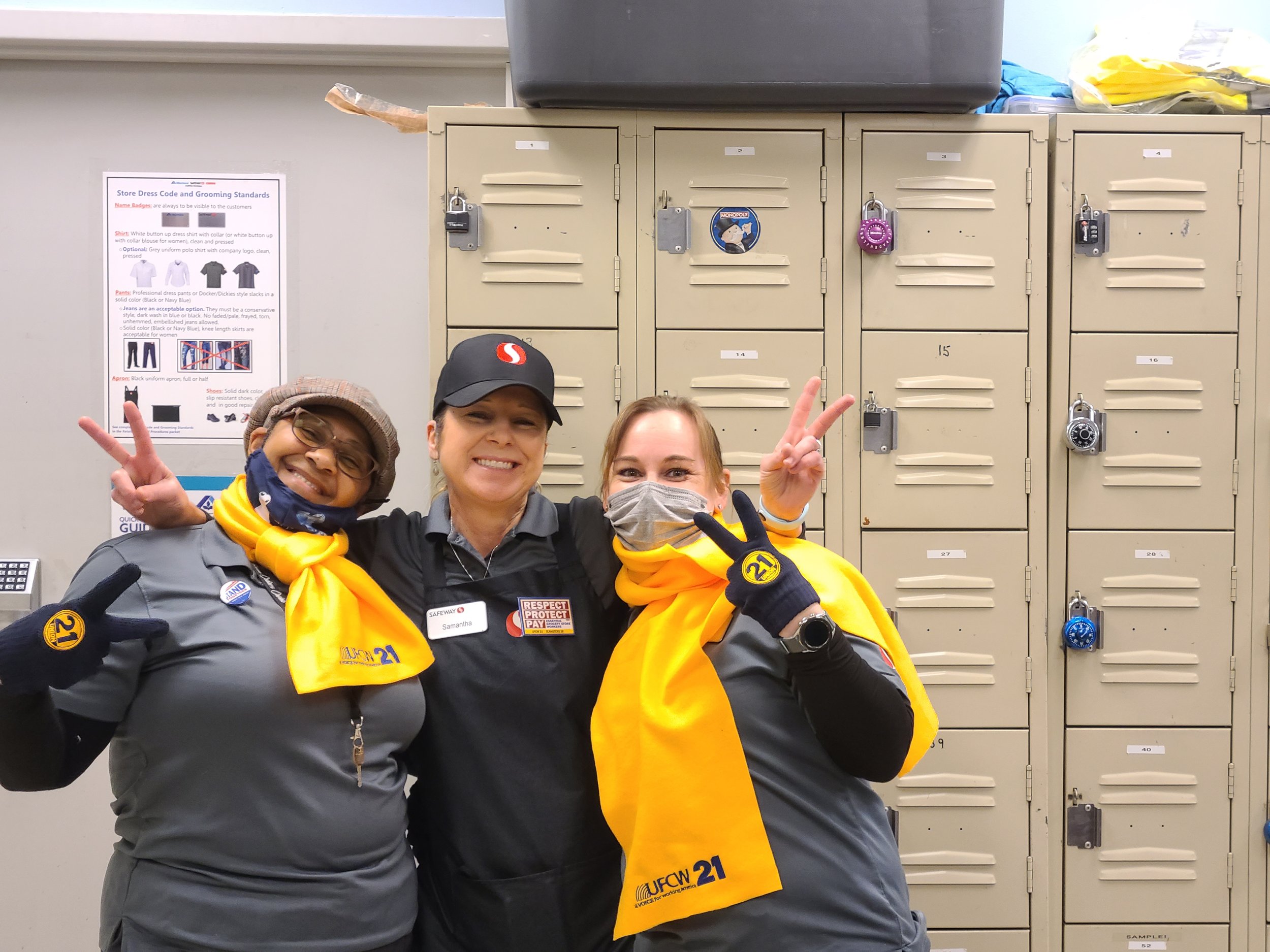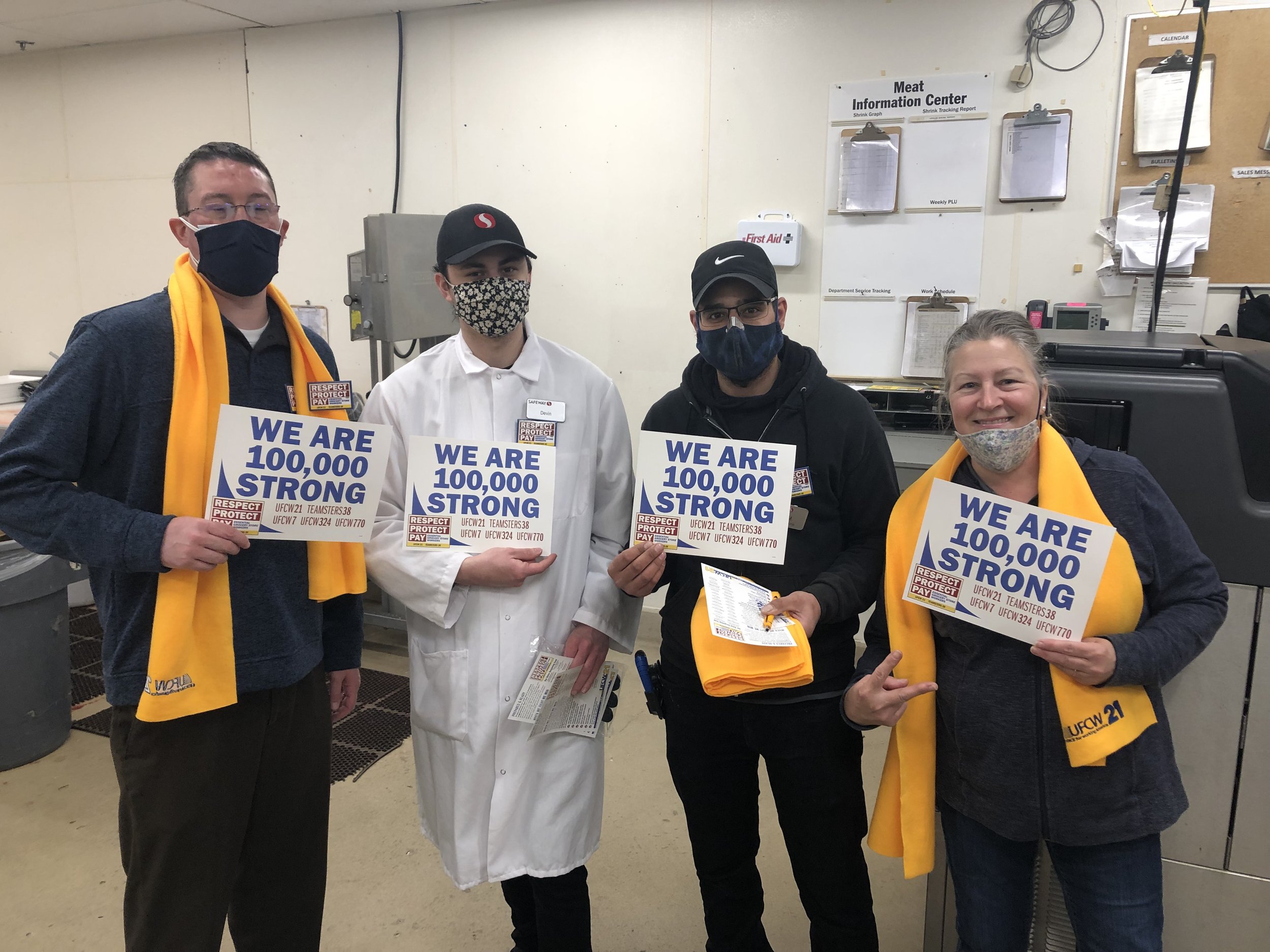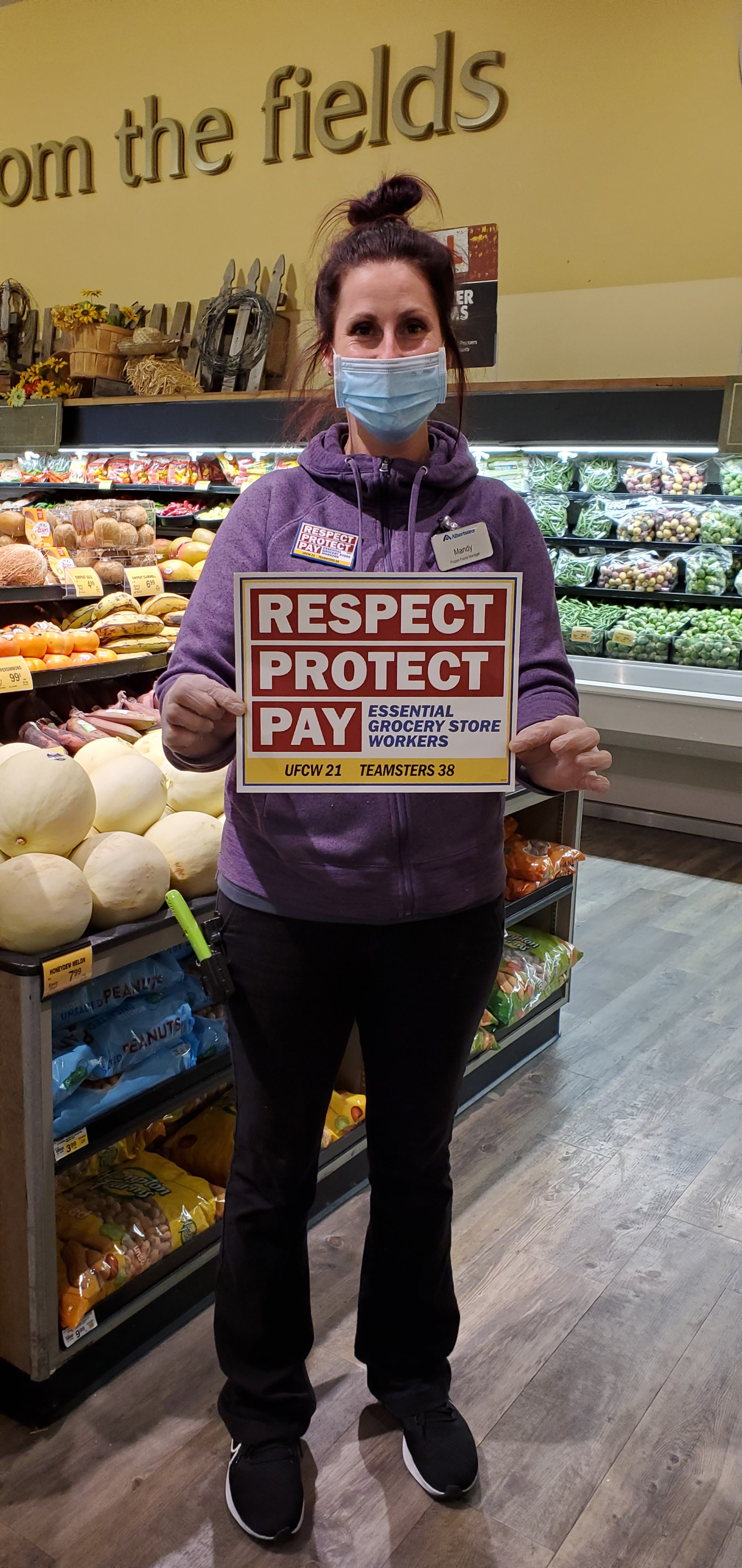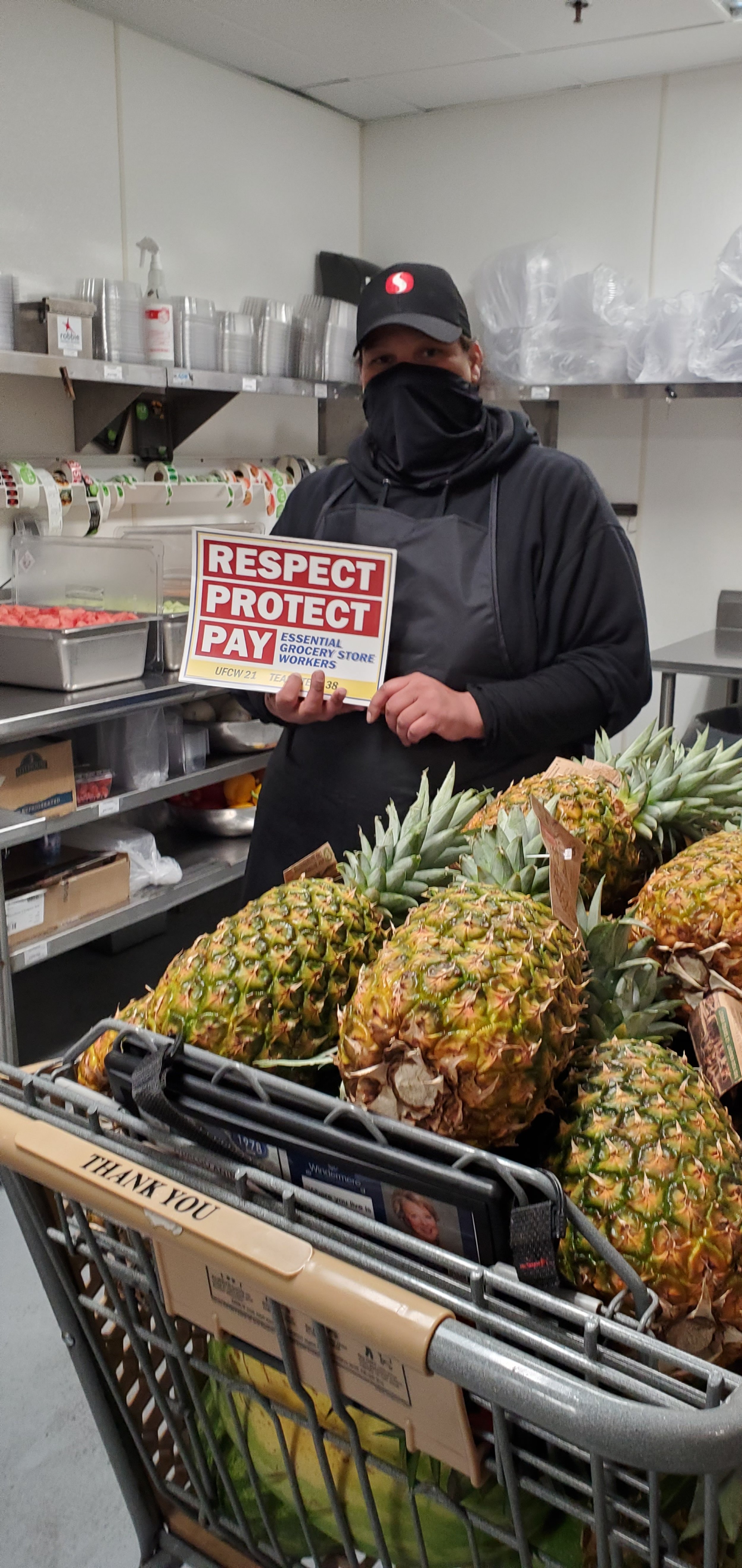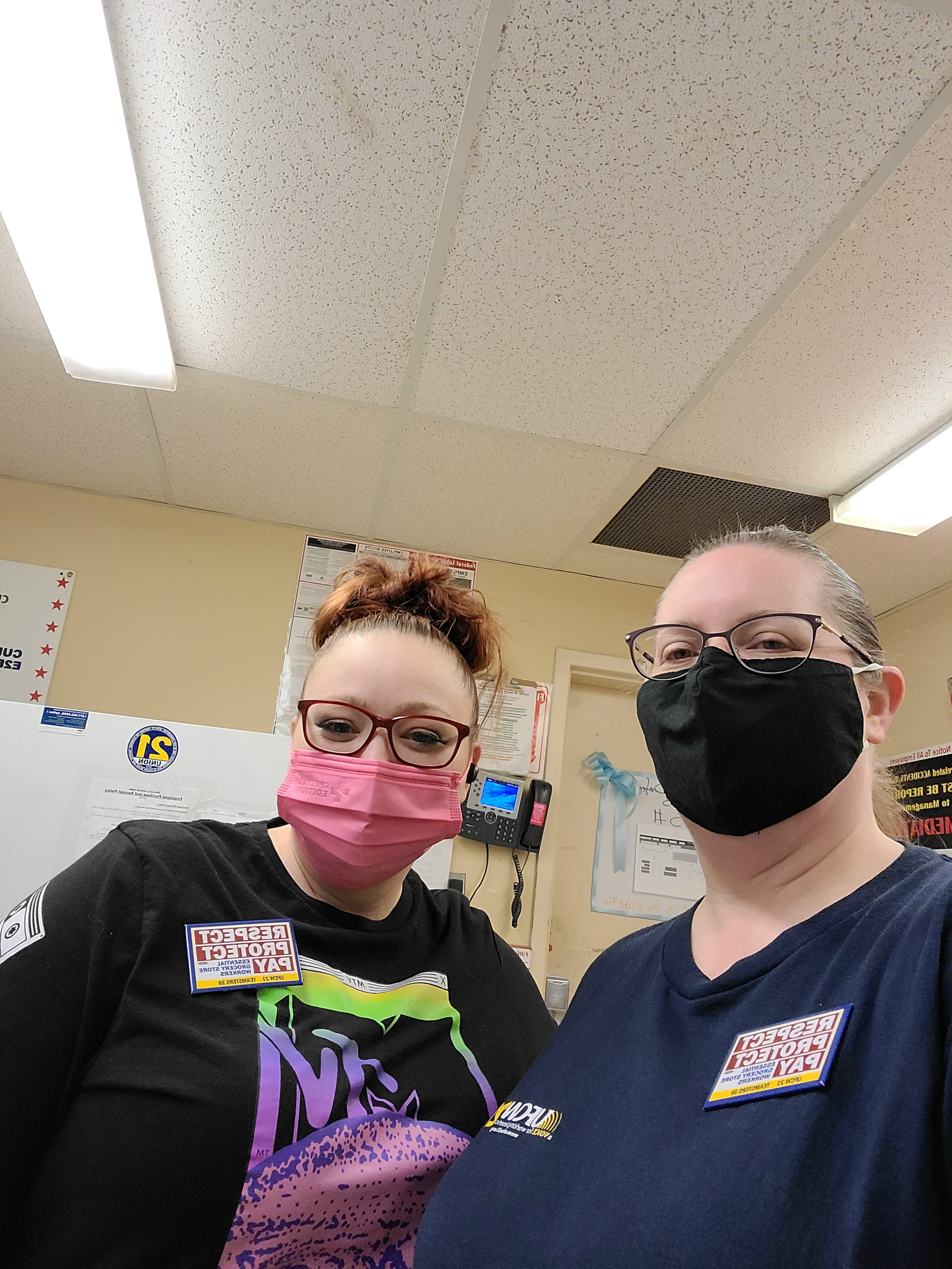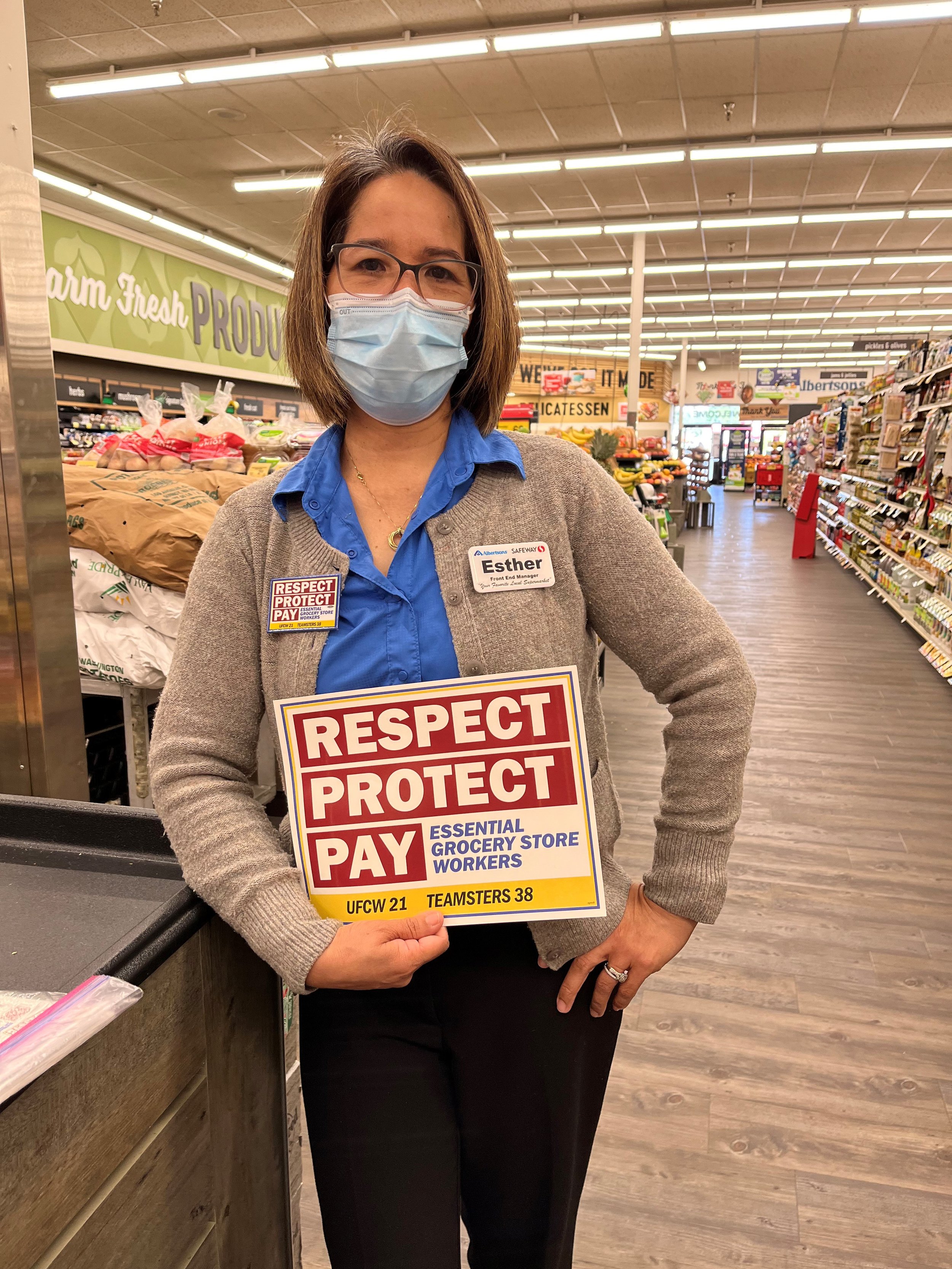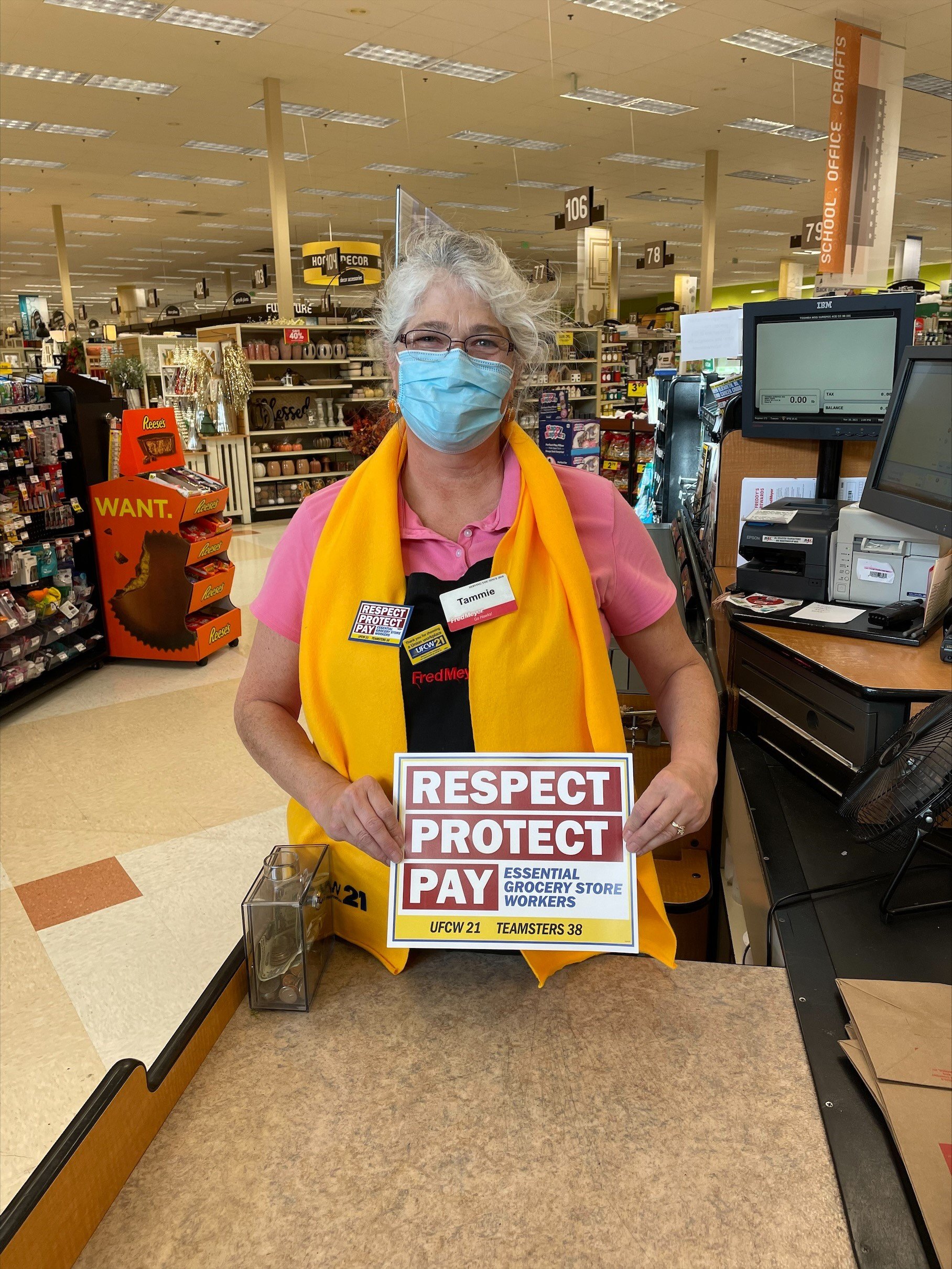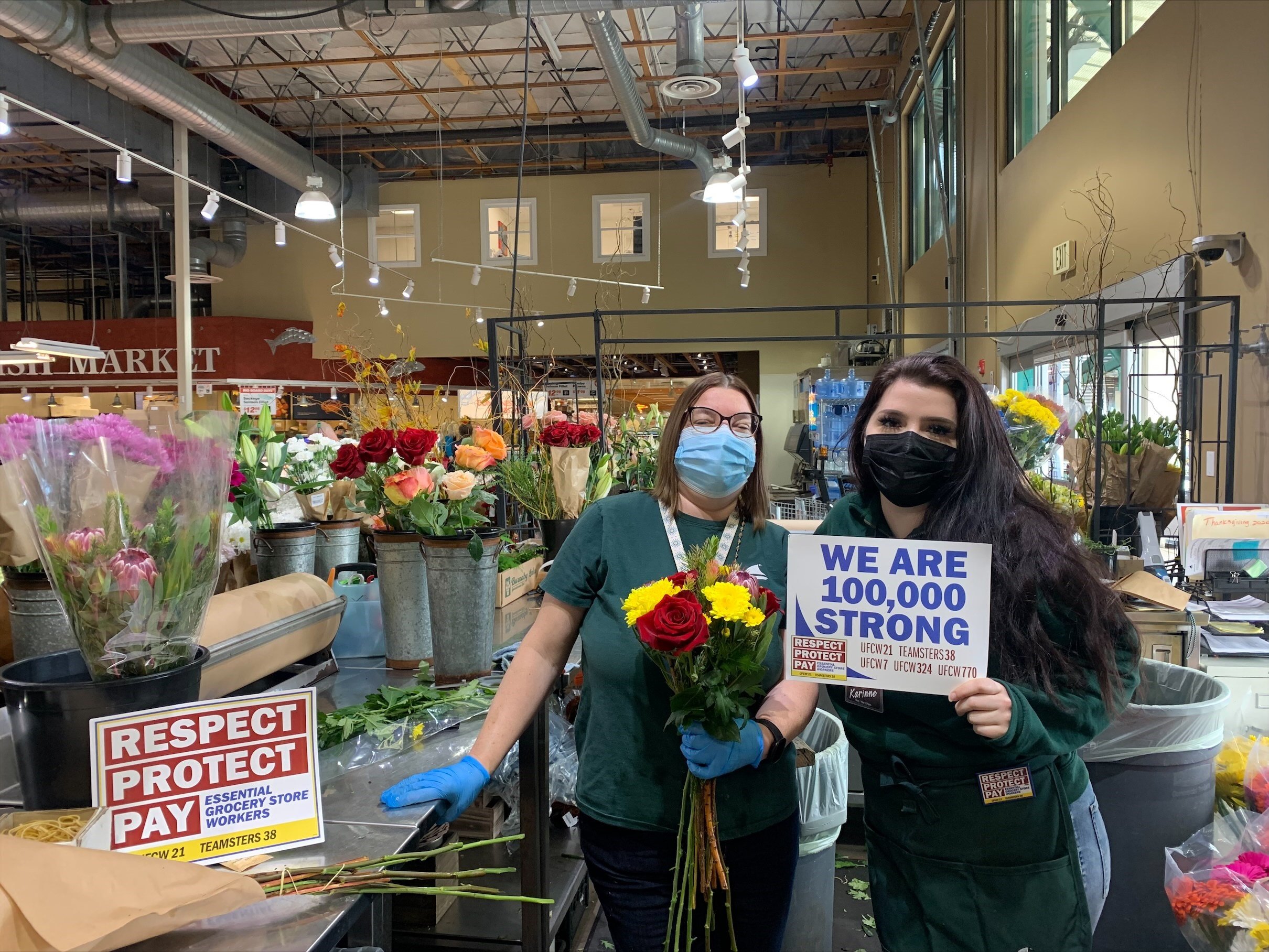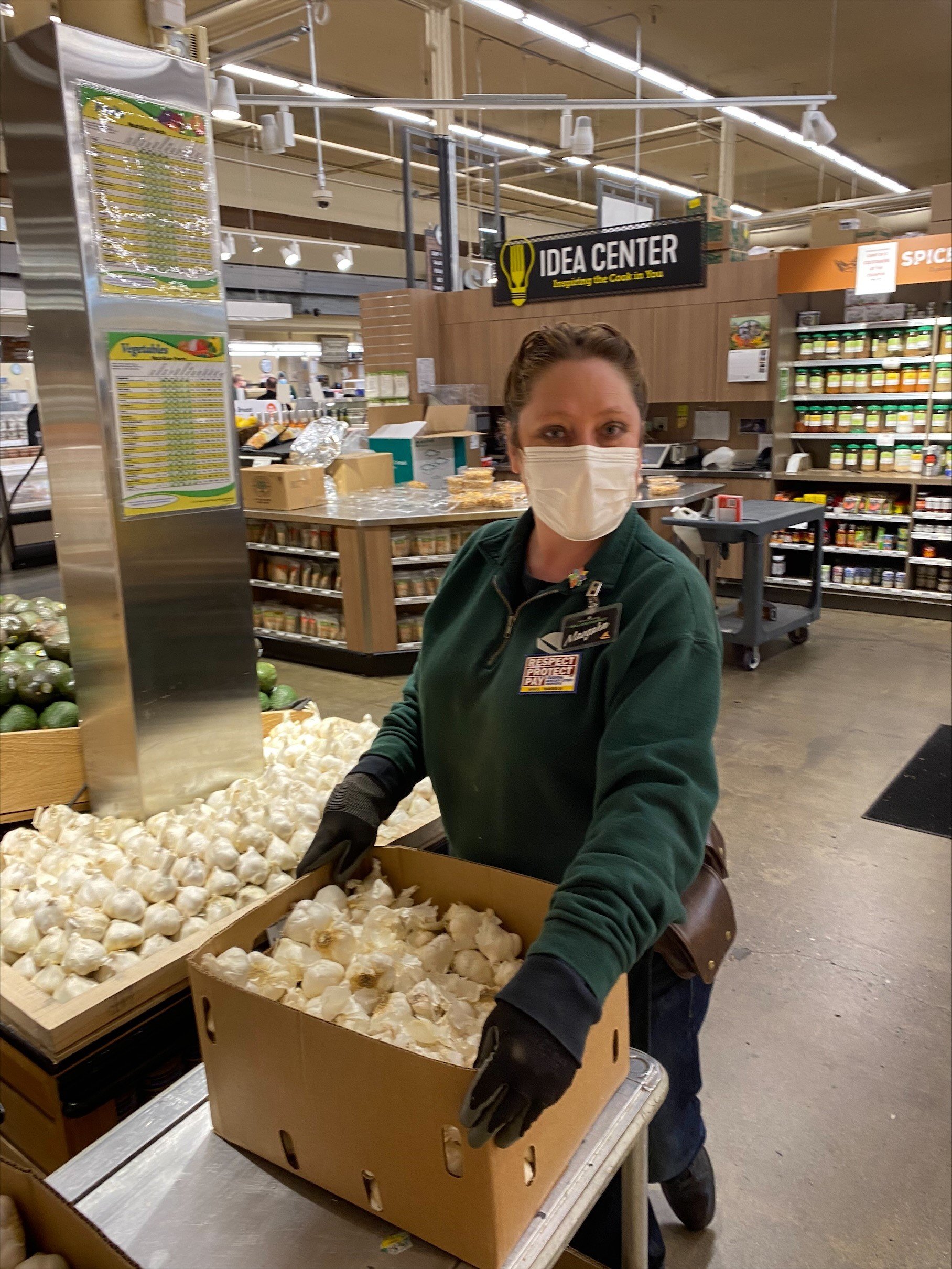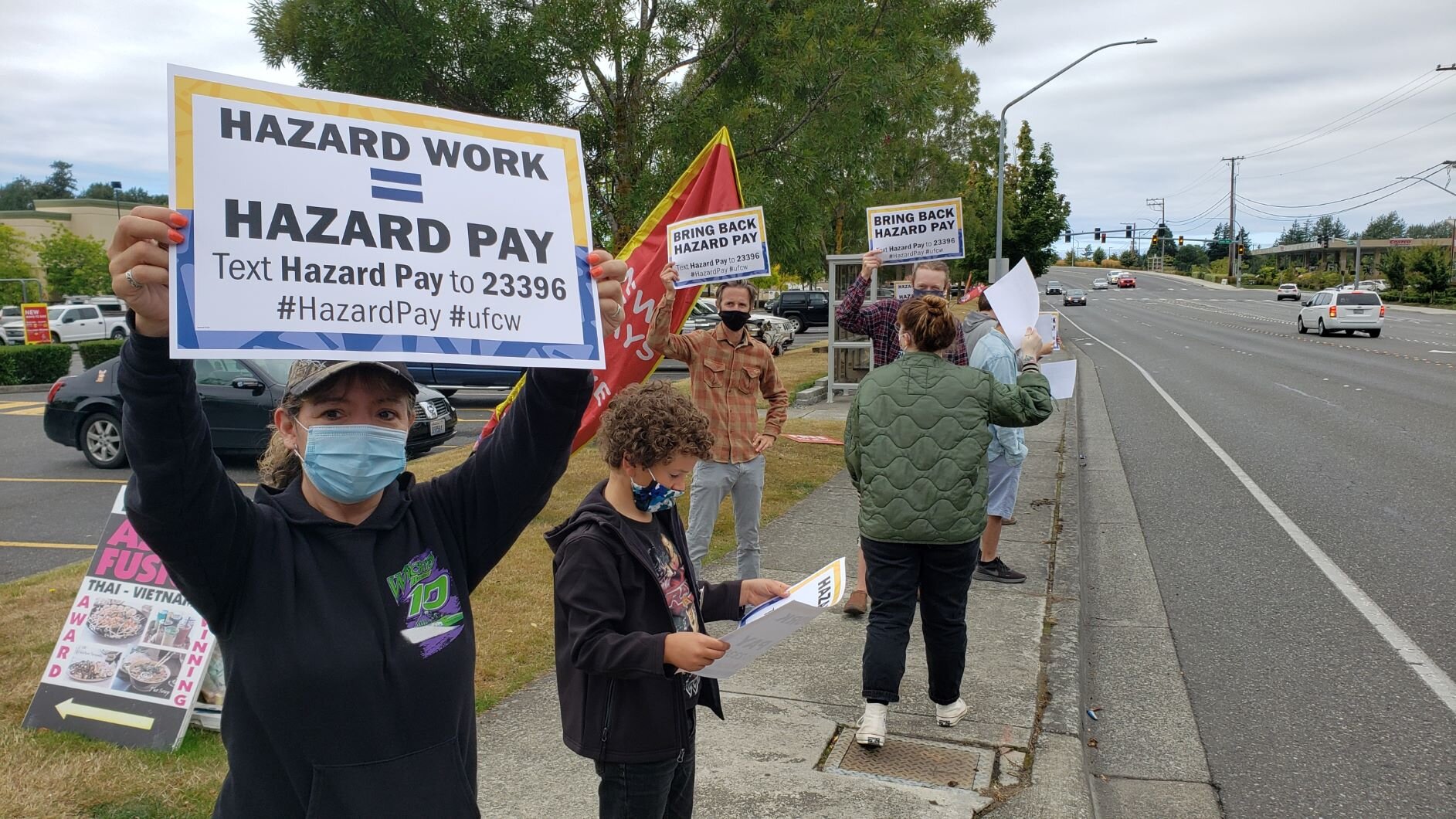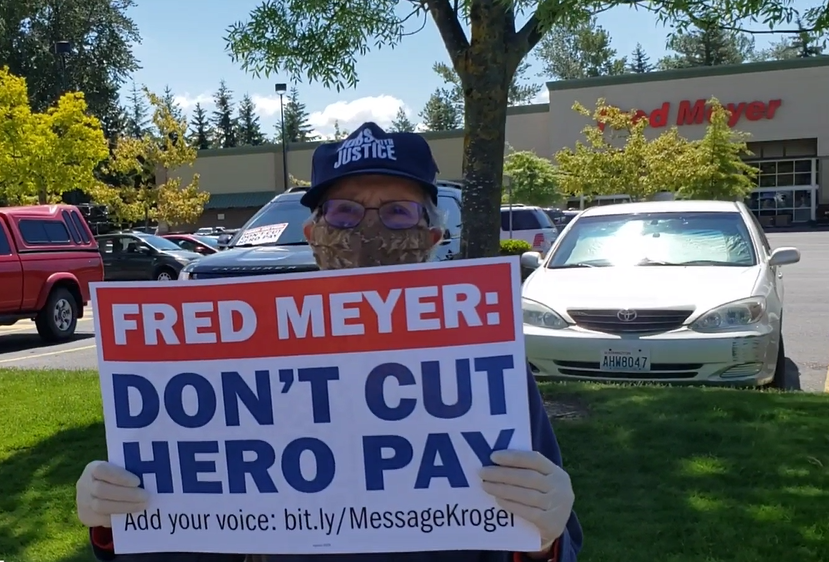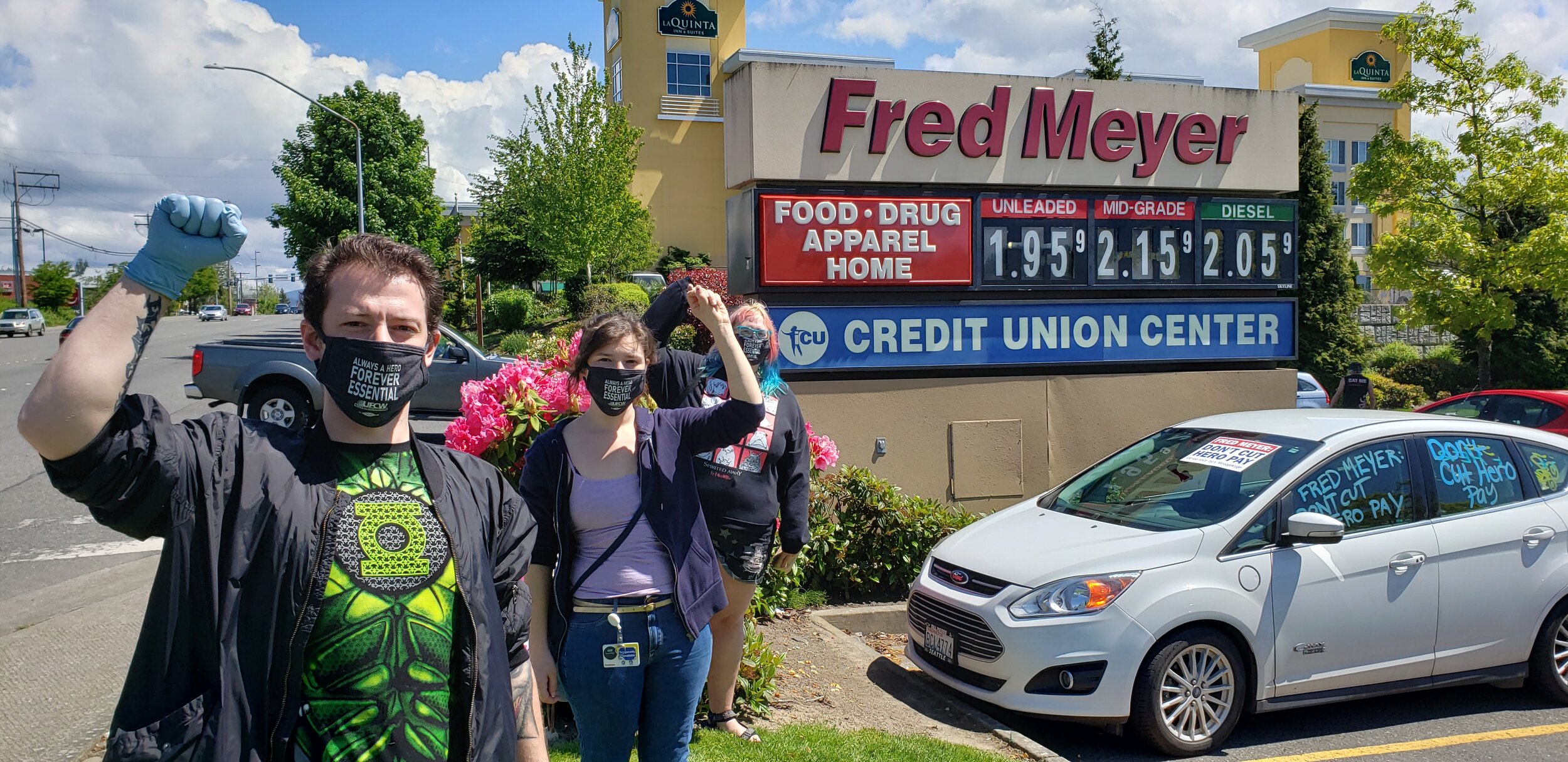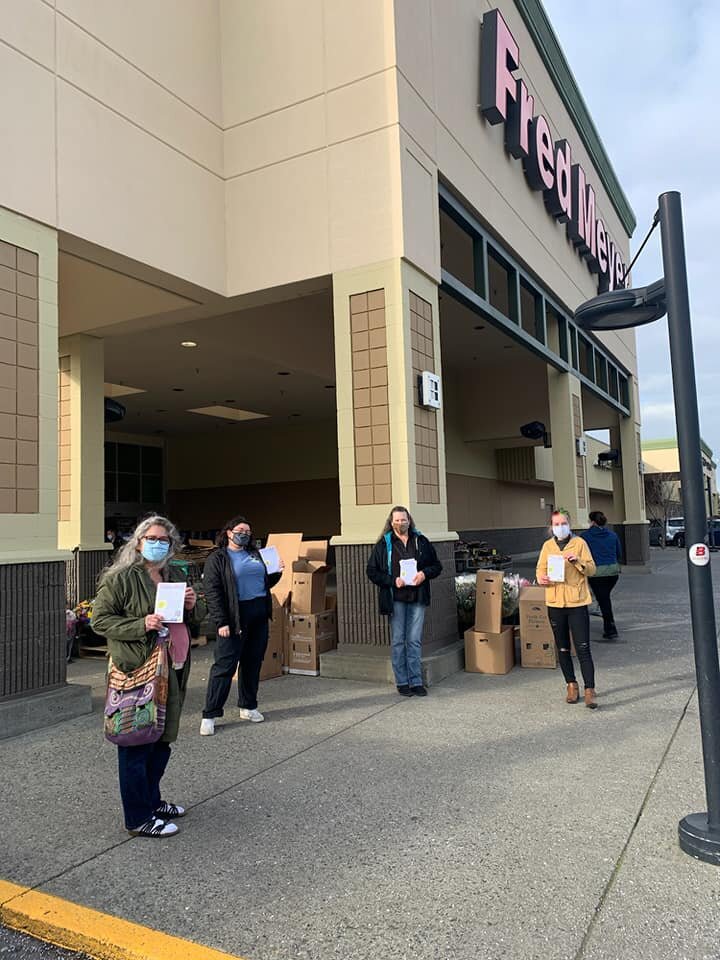FREQUENTLY ASKED QUESTIONS:
How did we get this hazard pay?
UFCW 21 members have been fighting for months and months to get the hazard pay we deserve. In grocery stores, many employers paid hazard pay for a short time at the beginning of the COVID pandemic, then took it away even though the risk of COVID exposure didn’t go away (in fact, it got a lot worse during the COVID spikes this winter). After all these actions, including petitions, filing grievances, and bargaining with employers, Seattle grocery workers went to the City Council and brought up the idea of the city taking this step since employers weren’t. Seattle City Council heard from many grocery store workers and received over 800 emails from workers and community supporters in favor of a hazard pay ordinance, and at least one city council member mentioned seeing workers in UFCW 21 buttons at his local grocery store, and many council members said hearing directly from grocery workers about the importance of hazard pay was key to their decision to support it. (See the video above!)
Why doesn’t my city council pass hazard pay?
Maybe they will! It only happens when we organize. We’ve already seen Burien City Council answer the call and pass a hazard pay ordinance, cities and counties in California have passed hazard pay ordinances as well, and we look forward to organizing anywhere that workers want to fight for this. Sign up for future trainings on hazard pay here—just check the appropriate box on that form.
What counts as hazard pay? Is this on top of overtime, existing hazard pay, and/or tips?
Employees must receive at least $4 per hour in hazard pay. Hazard pay is in addition to compensation, bonuses, commissions, and tips.
Can they cut my compensation to pay for this?
Employers cannot reduce other compensation because of this ordinance.
What if my employer is already paying hazard pay?
If an employer is already offering hazard pay, that extra pay can count toward the $4/hour hazard pay they are obligated to pay.
When is this paid out and where will it show up on my paycheck? Can they just give us a one-time bonus instead?
This $4/hour hazard pay must be paid out on your regular payday and itemized separately on your paycheck so you can see that you received it.
Do employers have to notify us about this hazard pay?
Your employer must post written notice of the rights established by this ordinance at all worksites covered by the ordinance within 30 days of its effective date, which was February 3, 2021. They also have to give you an updated “Notice of Employment Information” telling you your job title and your wage rate.
What’s the expiration date on this hazard pay?
There is no set date of expiration; employers need to pay this for the duration of the city’s COVID “civil emergency” proclaimed by the Mayor last March. We don’t know yet when the city will declare the civil emergency over.
What if I don’t see any hazard pay on my next paycheck?
If you get paid for hours worked anytime after 12:01 a.m. on February 3, you believe your employer is covered by this ordinance, and you don’t see a record of hazard pay on your paycheck, contact your Union Rep immediately. The city can investigate employers who don’t pay you the correct amount and force them to pay you, with interest, for the pay you missed. We have had several successful cases in recent years where workers have been compensated thousands of dollars in back pay they were owed. We take enforcement of workers’ rights very seriously.
Why weren’t all essential workers included in this ordinance?
UFCW 21 will continue to fight for hazard pay for all essential workers through contract bargaining, workplace organizing, and public actions. When it comes to the legislative process, we recognize that lawmakers, community leaders, the business lobby, voters, and other interest groups are all going to influence what we can achieve. In the case of the grocery industry, elected officials and the public have been receptive to hazard pay legislation because of the very clear connection between the enormous COVID-related profits that large grocery stores are making and the high COVID risk that workers face. We will continue to pursue hazard pay for all essential workers through all available avenues.
I heard that they might close stores or cut hours because hazard pay passed. Is that true, and is there anything we can do about it?
The big grocery companies that are subject to this ordinance have been making windfall profits because of COVID. They have funneled billions to their shareholders since the start of the pandemic. Yet the workers taking the risk to make all those profits possible saw very little reward. Any employer threatening to cut hours or close stores is doing this in a misplaced effort to bully us into submission, not because they don’t have enough money.
During the pandemic, grocery workers have been designated essential workers because grocery stores are essential to the health and well-being of our communities. We are confident that the public and elected officials in the Puget Sound region will stand with us if these companies attempt bully tactics like retaliatory store closures or hours cuts that would jeopardize safety.
Your union contract has language in it about hours and hours reduction. We need to continue to enforce our contracts and our right to hours under our contracts. Work with your shop steward or union rep if you believe hours are being cut at your store





